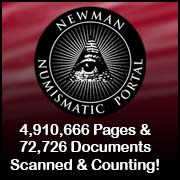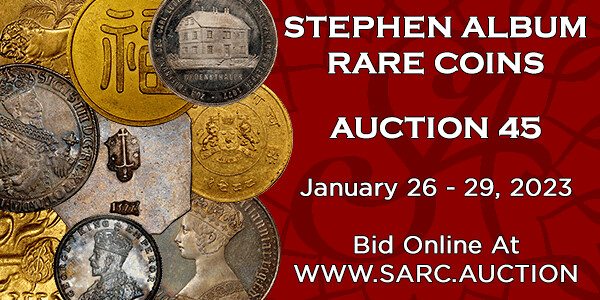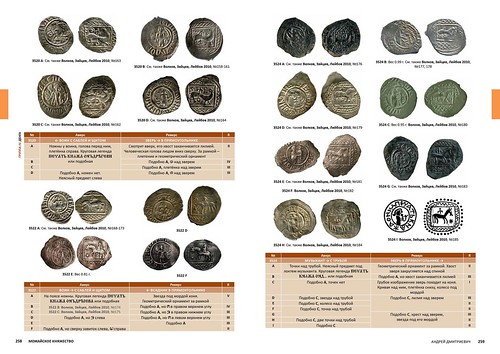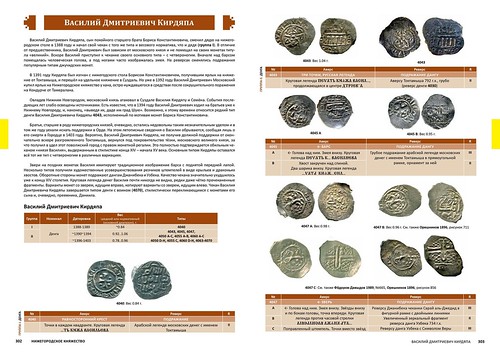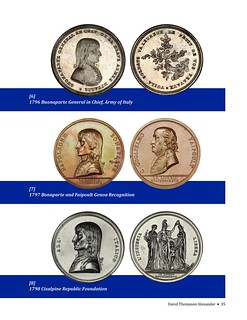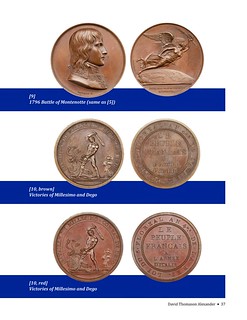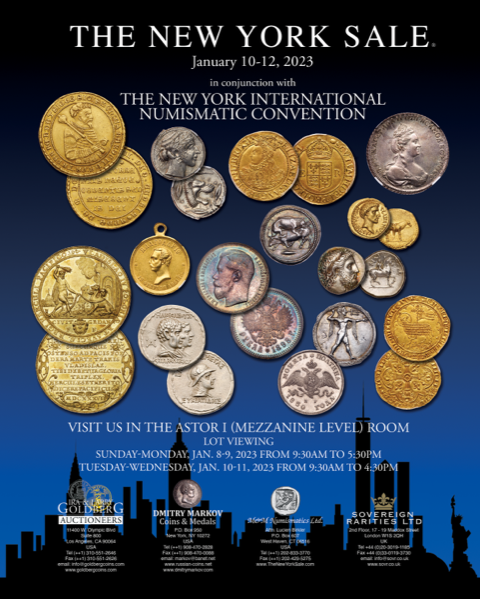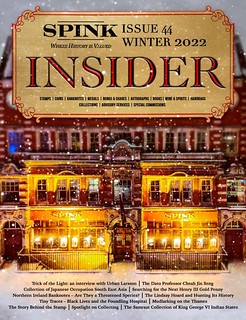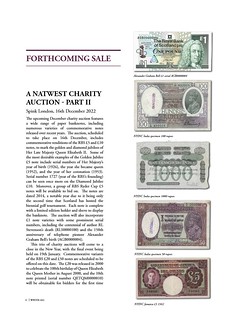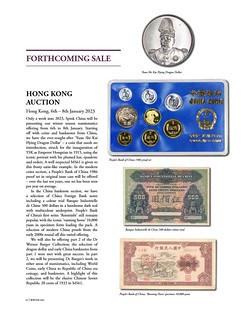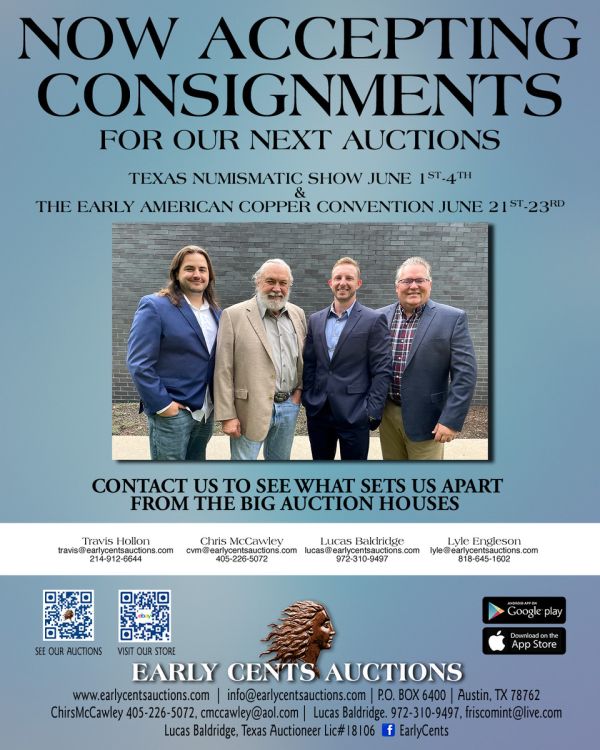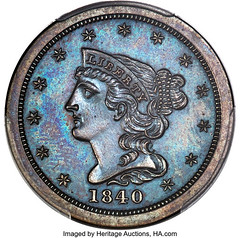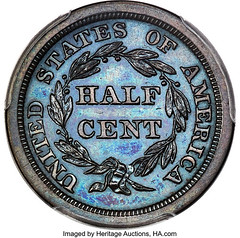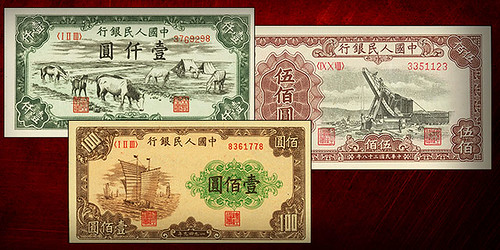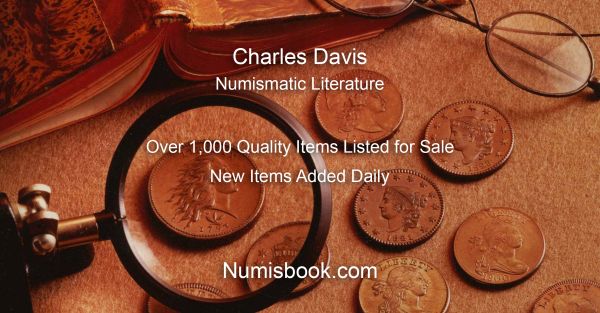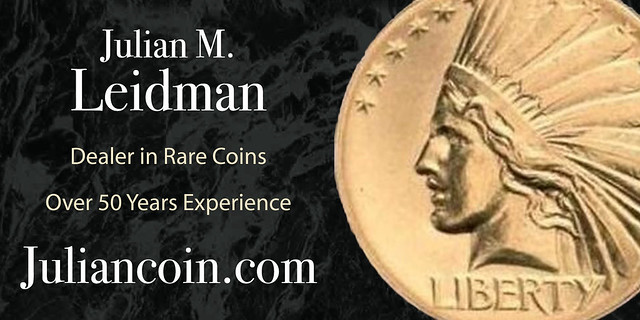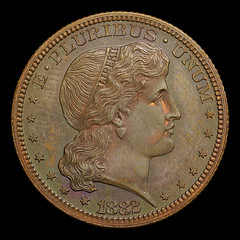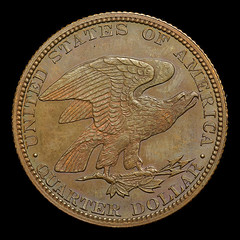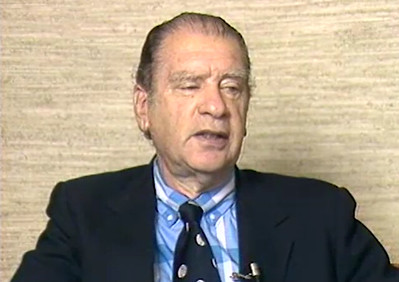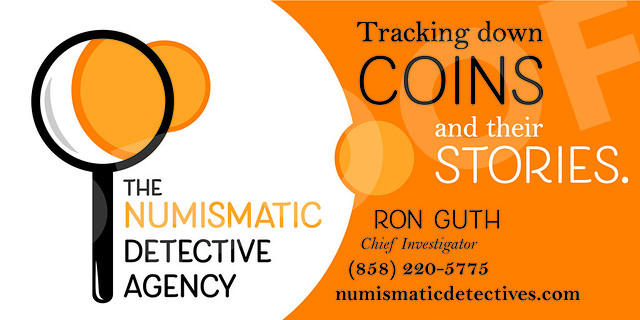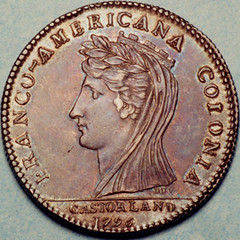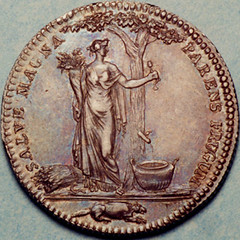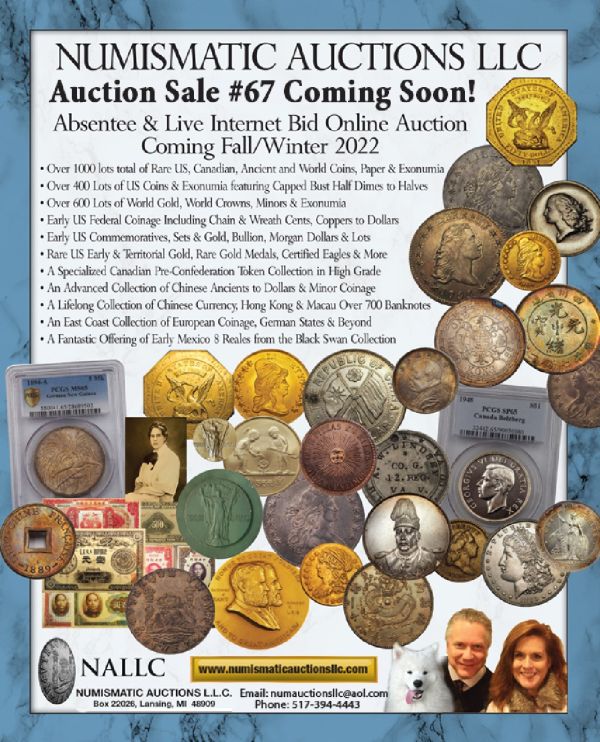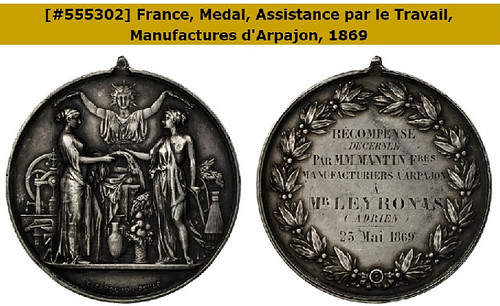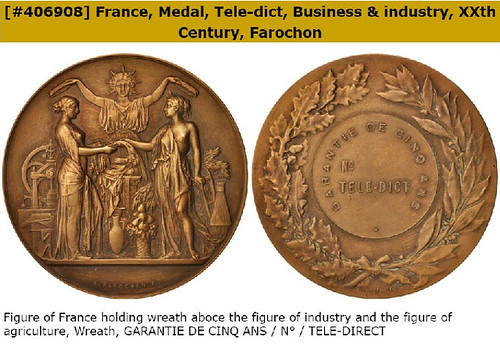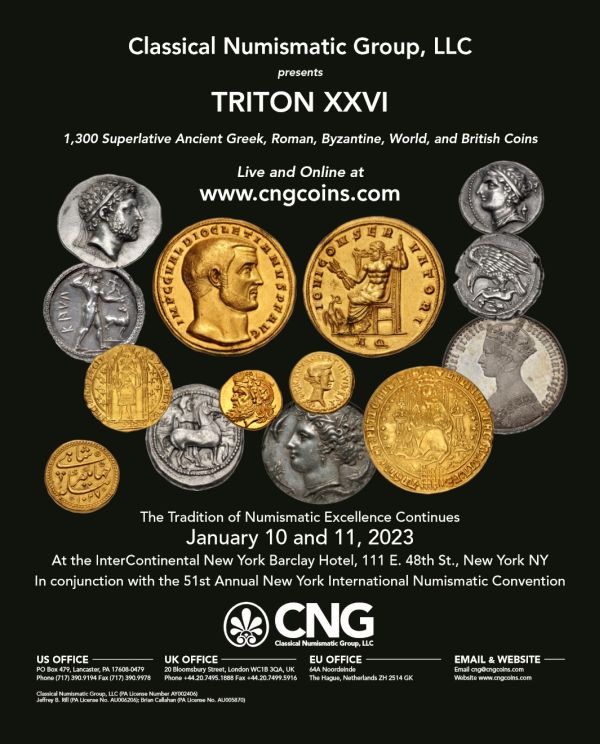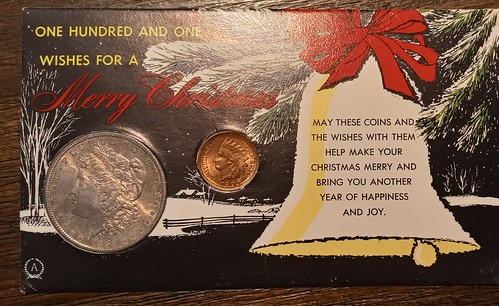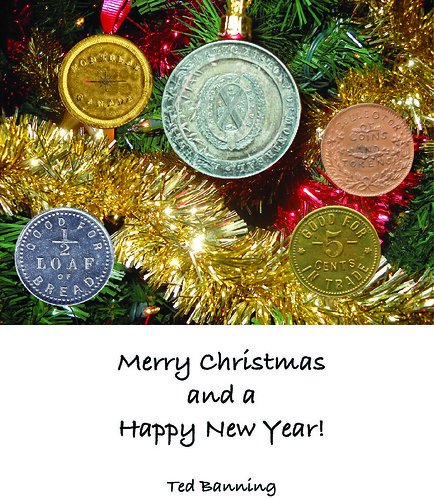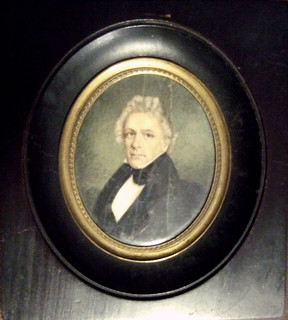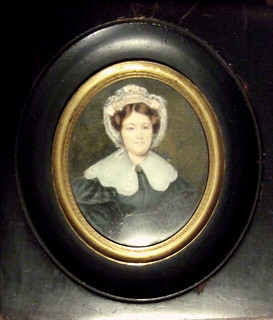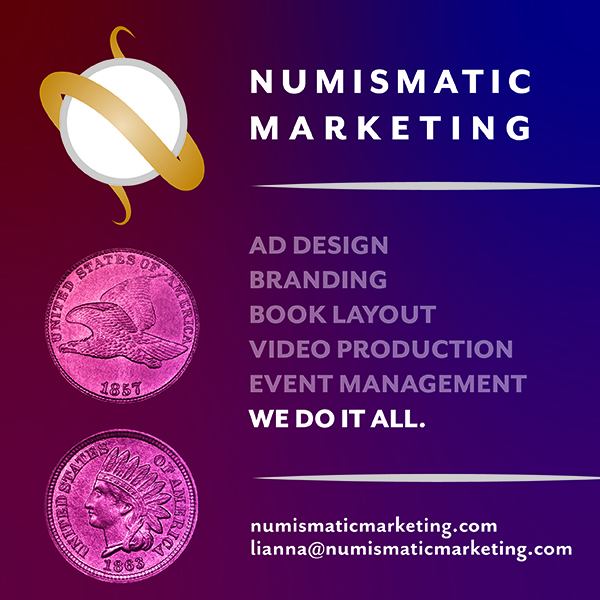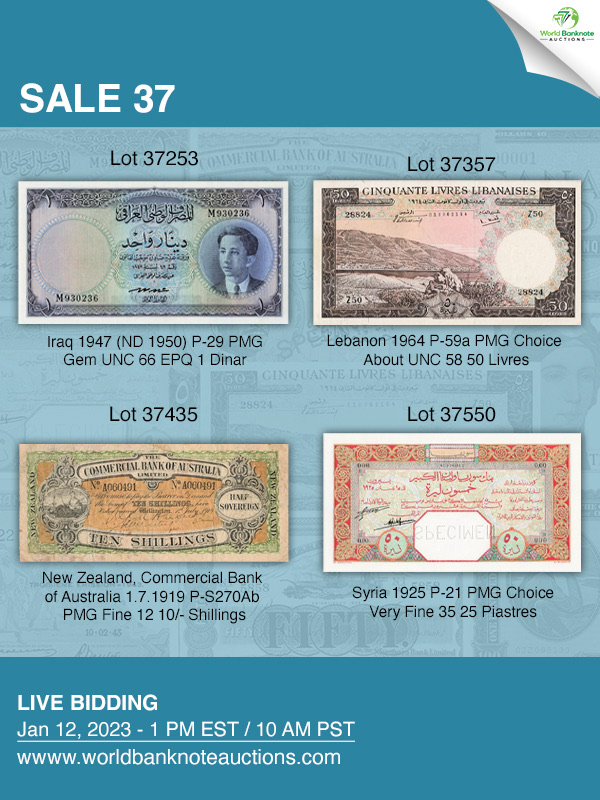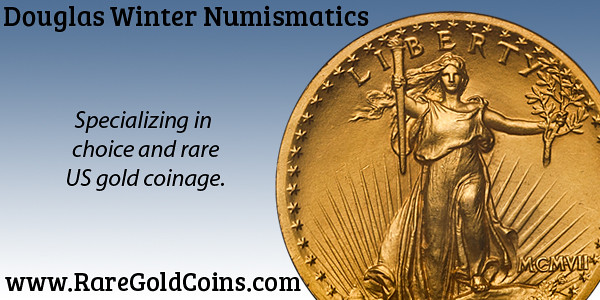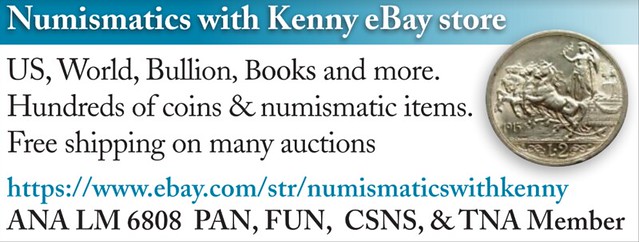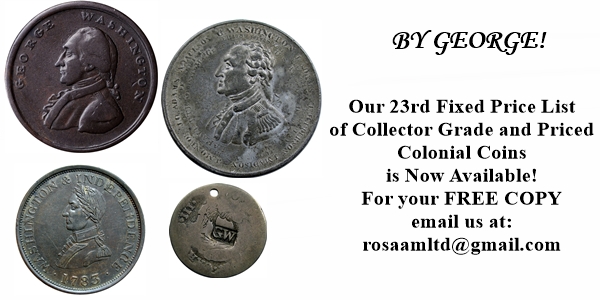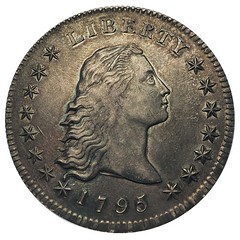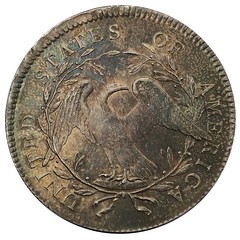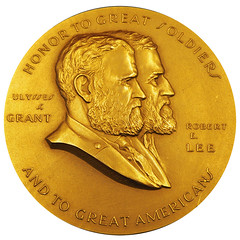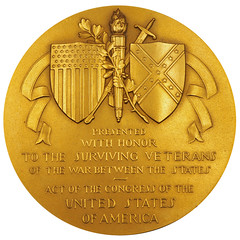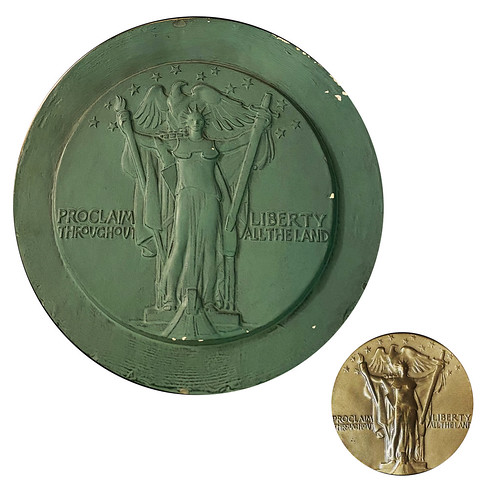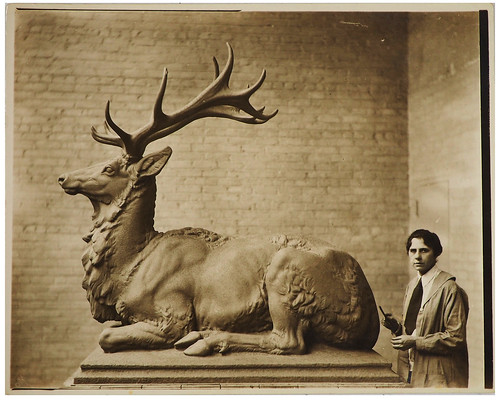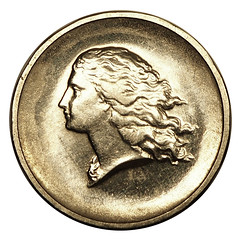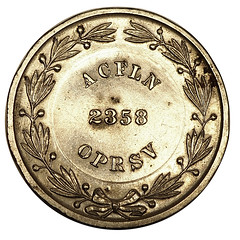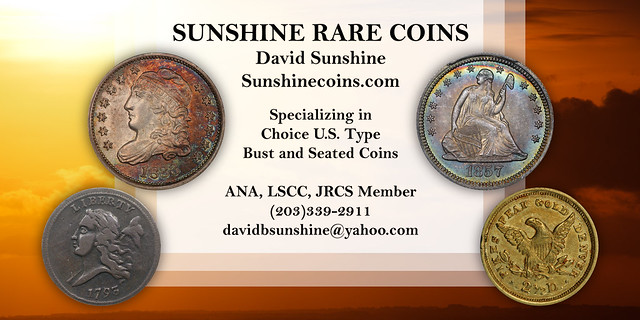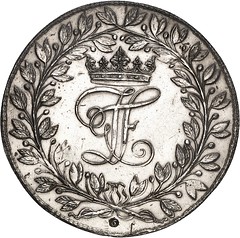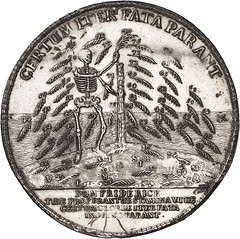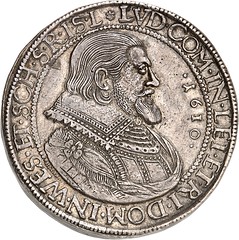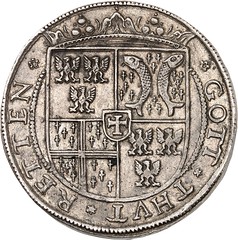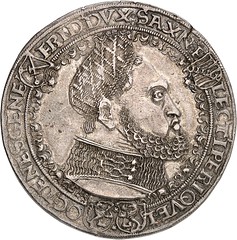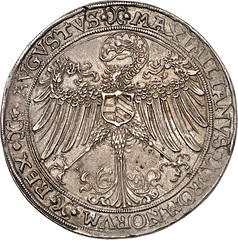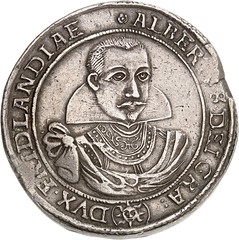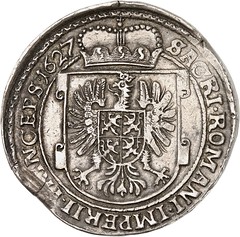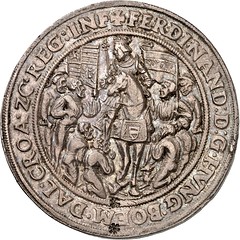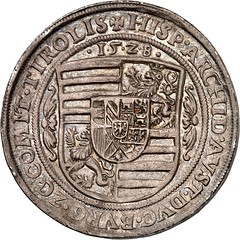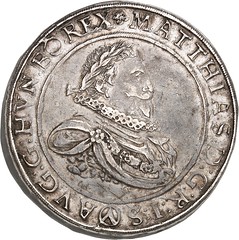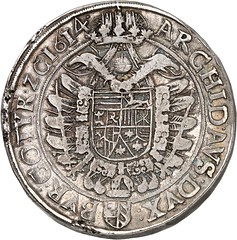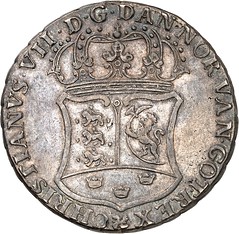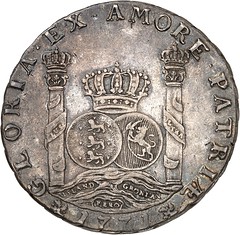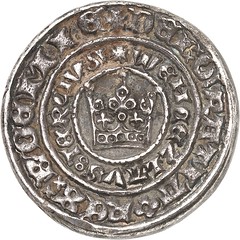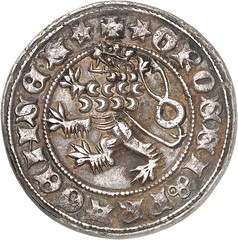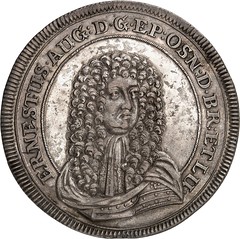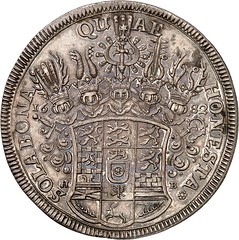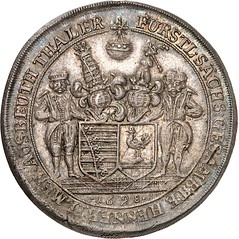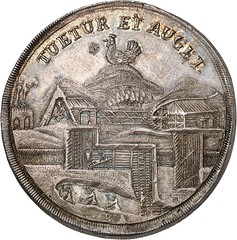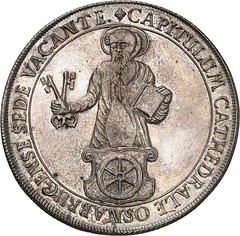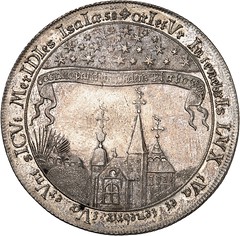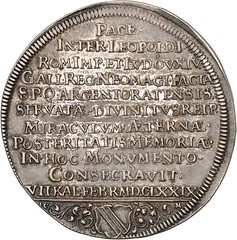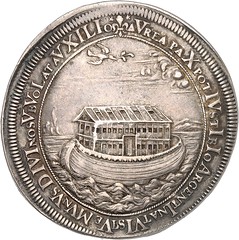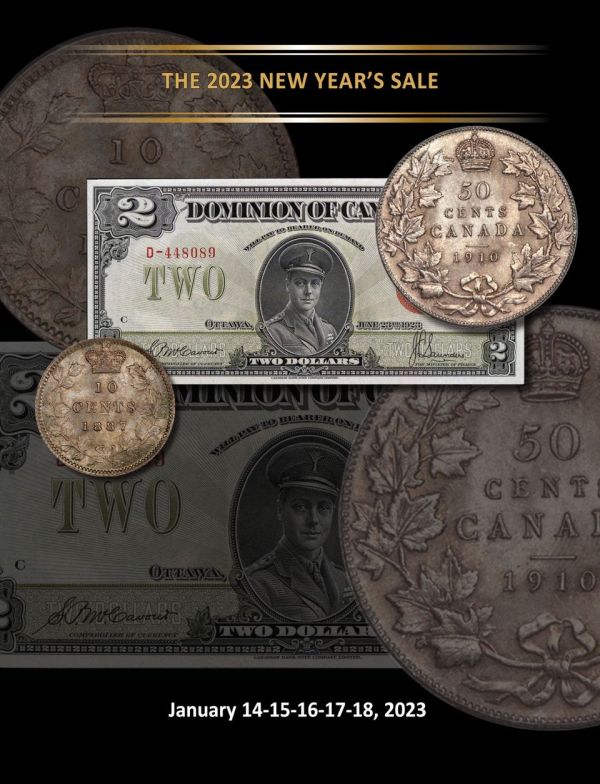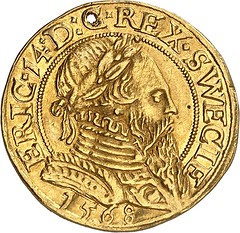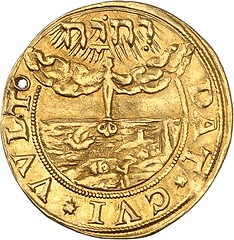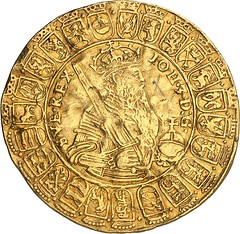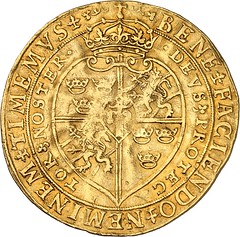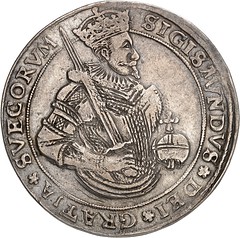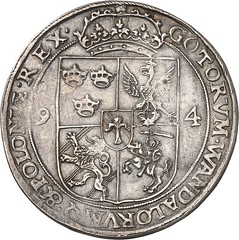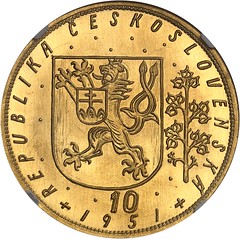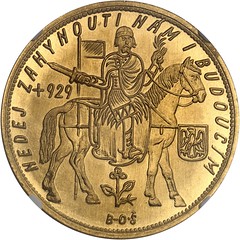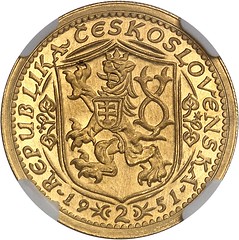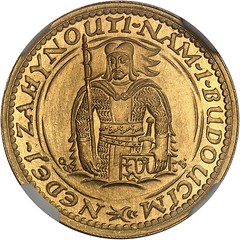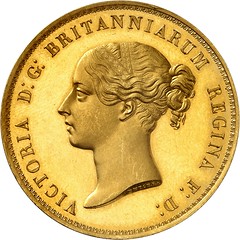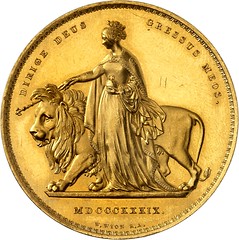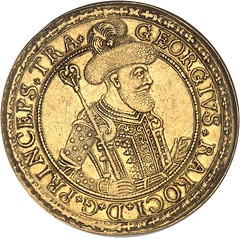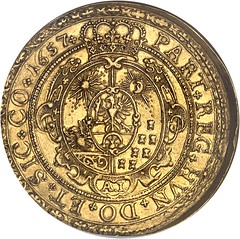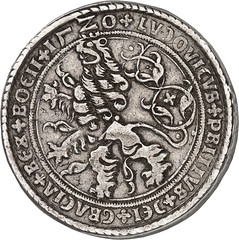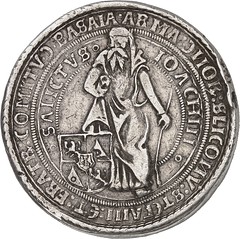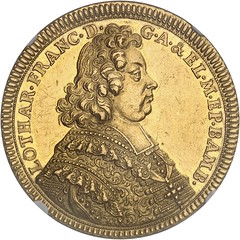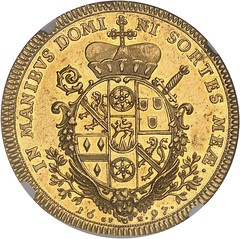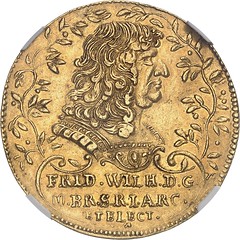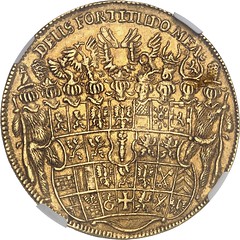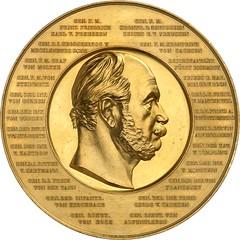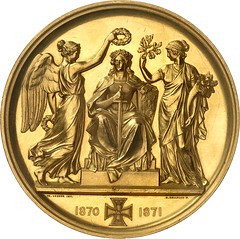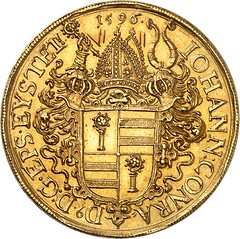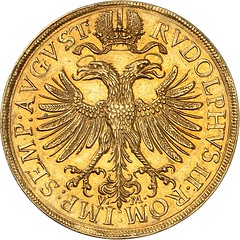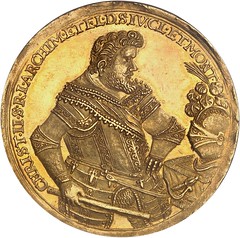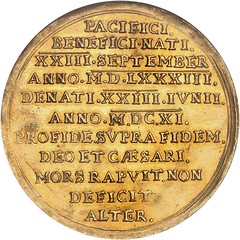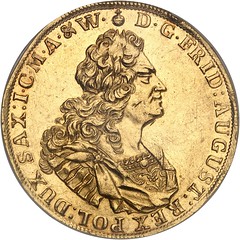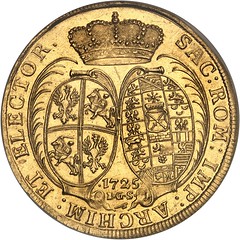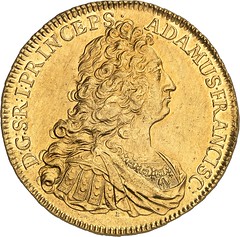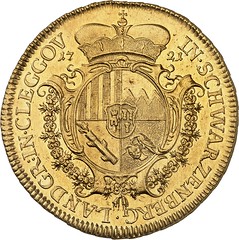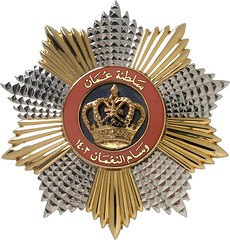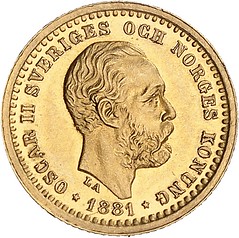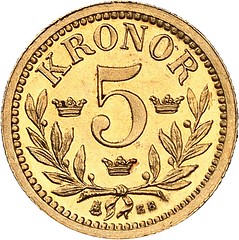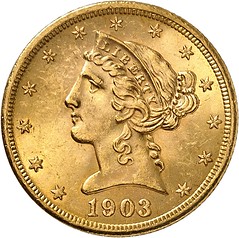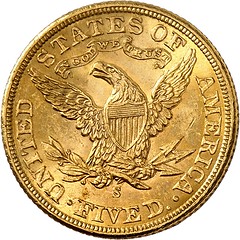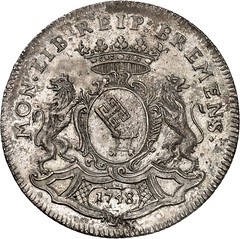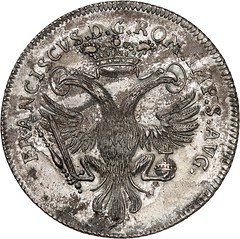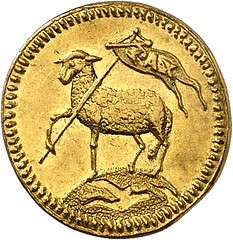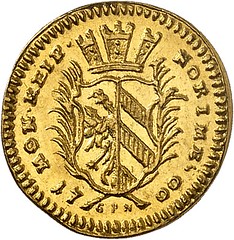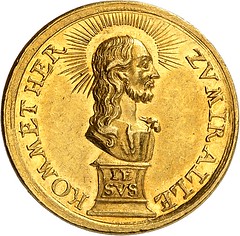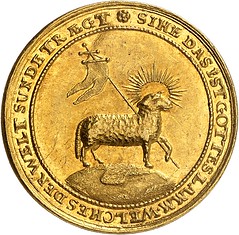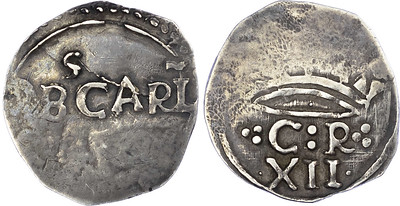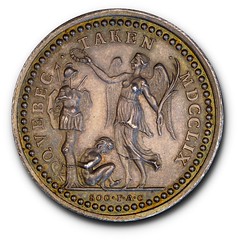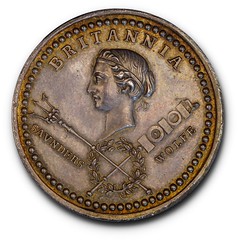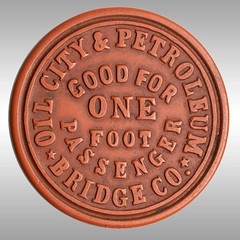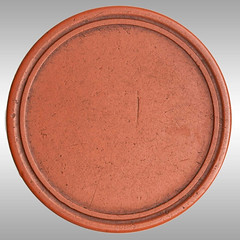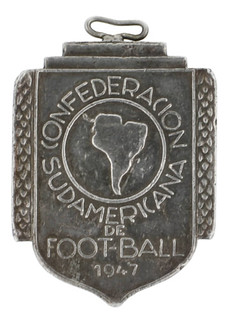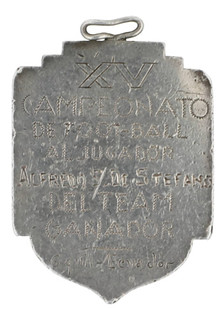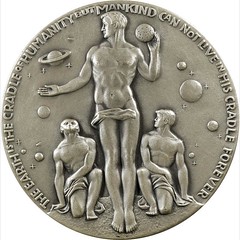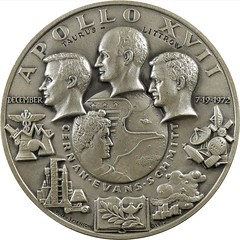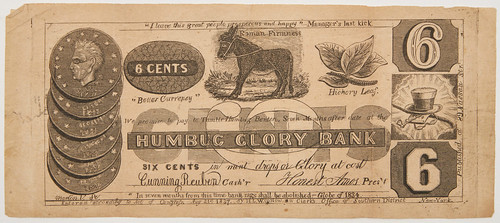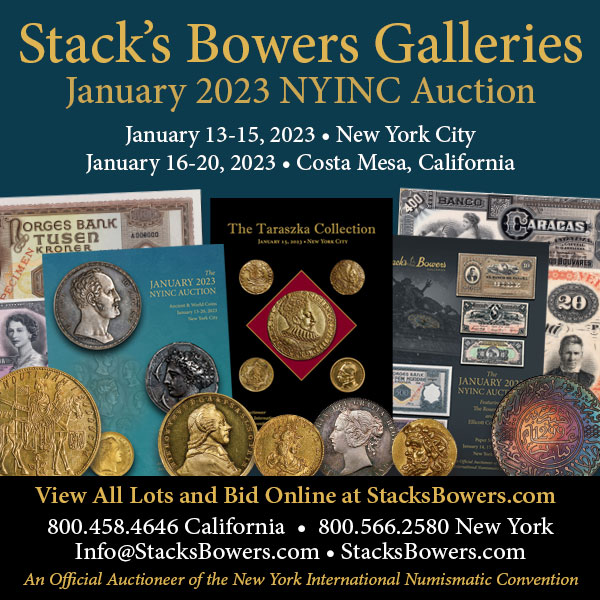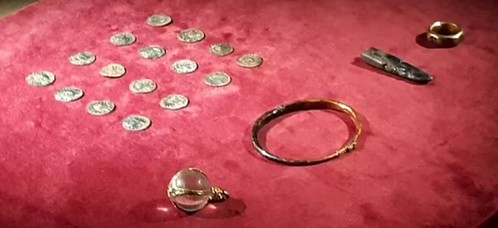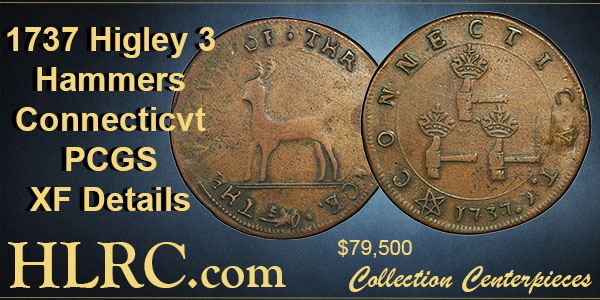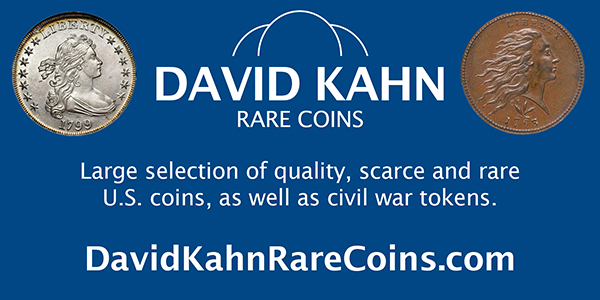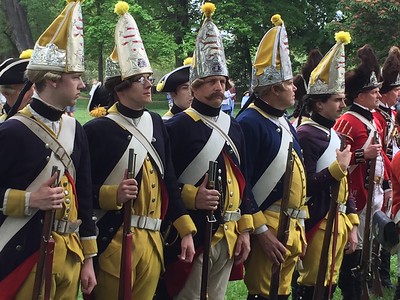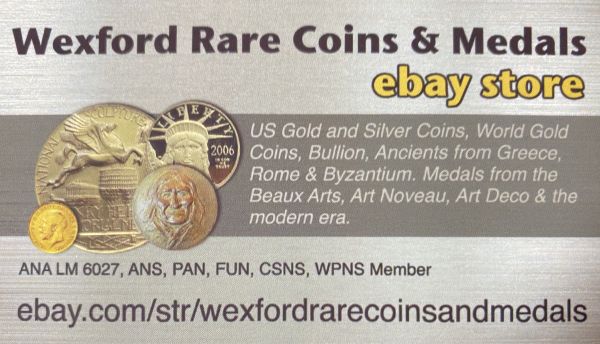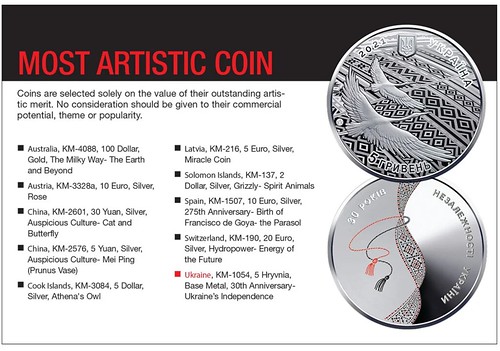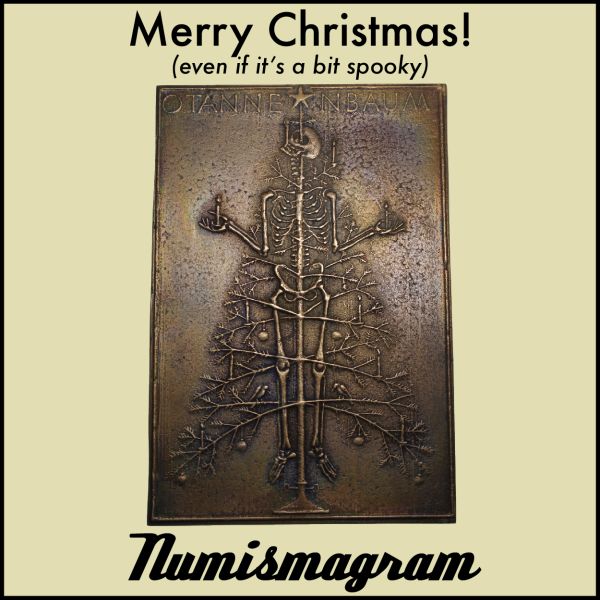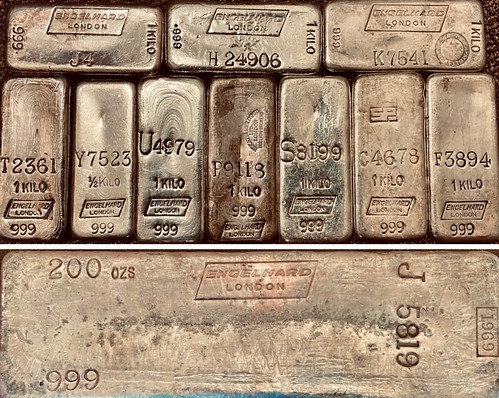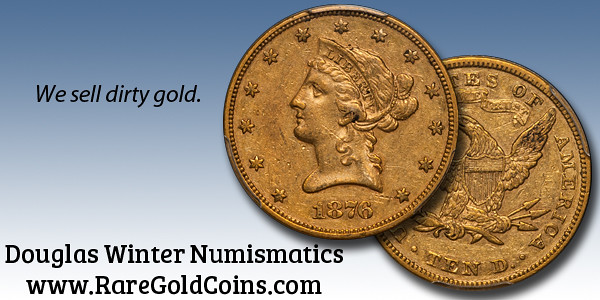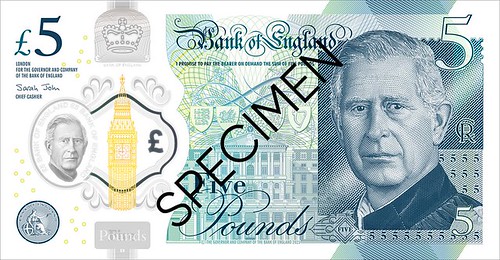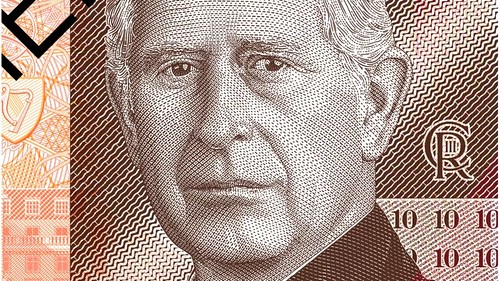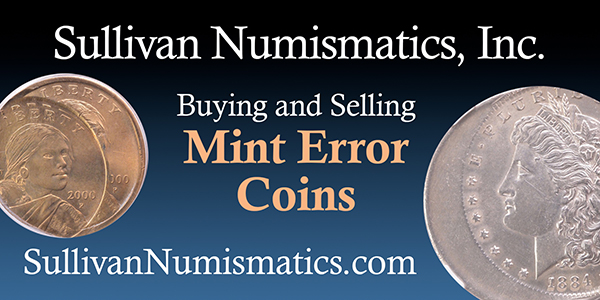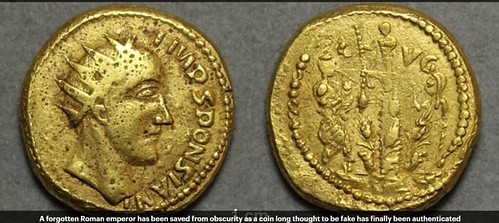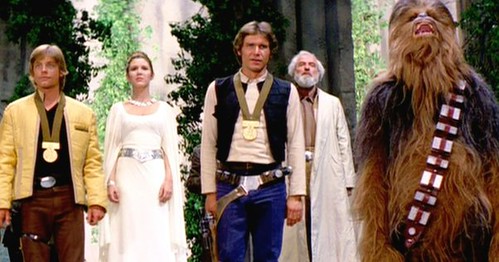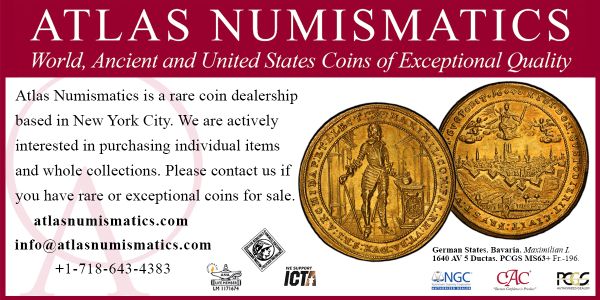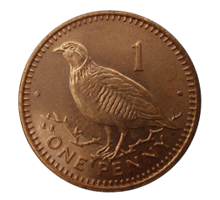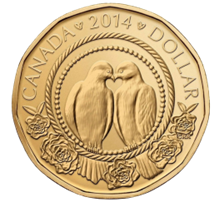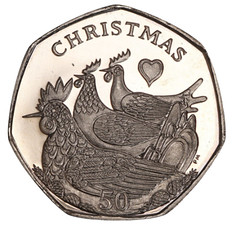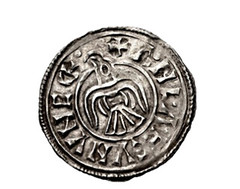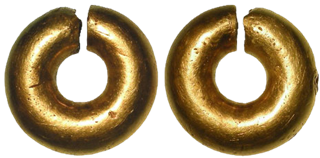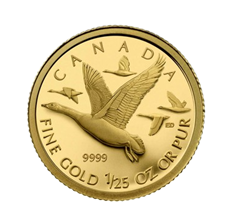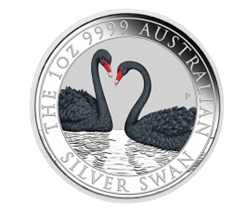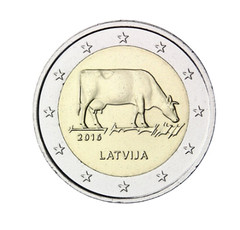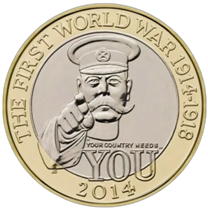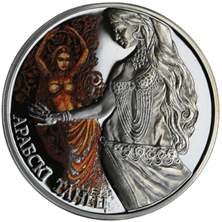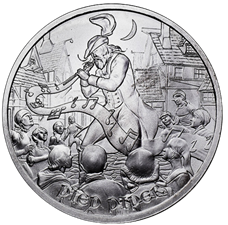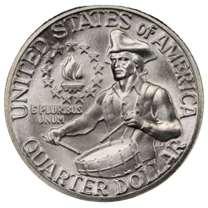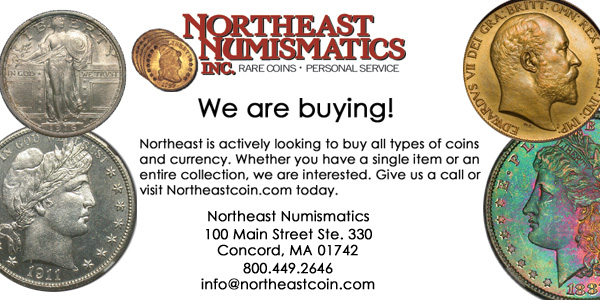
Visit our NBS Sponsors




About UsThe Numismatic Bibliomania Society is a non-profit association devoted to the study and enjoyment of numismatic literature. For more information please see our web site at coinbooks.org SubscriptionsThose wishing to become new E-Sylum subscribers (or wishing to Unsubscribe) can go to the following web page link MembershipThere is a membership application available on the web site Membership Application To join, print the application and return it with your check to the address printed on the application. Print/Digital membership is $40 to addresses in the U.S., and $60 elsewhere. A digital-only membership is available for $25. For those without web access, write to: Charles Heck, Treasurer AsylumFor Asylum mailing address changes and other membership questions, contact Chuck at this email address: treasurer@coinbooks.org SubmissionsTo submit items for publication in The E-Sylum, write to the Editor at this address: whomren@gmail.com BUY THE BOOK BEFORE THE COINSale Calendar |
- WAYNE'S WORDS: THE E-SYLUM DECEMBER 25, 2022
- NEW SUBSCRIBER CONTEST RESULTS
- NEW BOOK: RUSSIAN MEDIEVAL COINS, 4TH ED.
- NEW BOOK: A NAPOLEONIC MEDAL PRIMER
- SPINK INSIDER WINTER 2022
- ERNEST JOHN MONTGOMERY MD (1935-2019)
- BRIAN CORNWELL (1940-2022)
- TEICHMAN CREATES JUDD PATTERN PHOTO SETS
- VIDEO: ERIC P. NEWMAN
- MORE ON THE CASTORLAND HOARD
- ON THE GODDESS OF SCIENCE & INDUSTRY
- NOTES FROM E-SYLUM READERS: DECEMBER 25, 2022
- DOING YOUR OWN NATIONAL ARCHIVE RESEARCH
- VOCABULARY TERM: MEDALLIC OBJECT
- MORE ON NUMISMATIC HALLS OF FAME
- NUMISMATISTS BORN OR DIED ON CHRISTMAS
- NUMISMATIC AUCTIONS SALE 67 U.S. HIGHLIGHTS
- KÜNKER SALE 379 HIGHLIGHTS
- KÜNKER SALE 380 HIGHLIGHTS
- NUMISMATIC NUGGETS: DECEMBER 25, 2022
- HEREFORDSHIRE HOARD HEARING
- GOLD GUINEA FOUND AT BATTLE OF RED BANK
- 2023 COIN OF THE YEAR NOMINEES
- ENGELHARD LONDON SILVER INGOTS
- THE NEW KING CHARLES III BANKNOTES
- LOOSE CHANGE: DECEMBER 25, 2022
- THE TWELVE COLLECTING DAYS OF CHRISTMAS
Click here to read the thin version on the web
Click here to subscribe
Click here to access the complete archive
To comment or submit articles, reply to whomren@gmail.com
Content presented in The E-Sylum is not necessarily researched or independently fact-checked, and views expressed do not necessarily represent those of the Numismatic Bibliomania Society.
WAYNE'S WORDS: THE E-SYLUM DECEMBER 25, 2022
 New subscribers this week include:
Mary Lynn Garrett, courtesy Jeff Garrett;
Justin Atkins, courtesy Mark Ferguson and Vic Bozath;
Keith Jennings, courtesy Duane Feisel ;
Welcome aboard!
New subscribers this week include:
Mary Lynn Garrett, courtesy Jeff Garrett;
Justin Atkins, courtesy Mark Ferguson and Vic Bozath;
Keith Jennings, courtesy Duane Feisel ;
Welcome aboard!
Thank you for reading The E-Sylum. If you enjoy it, please send me the email addresses of friends you think may enjoy it as well and I'll send them a subscription. Contact me at whomren@gmail.com anytime regarding your subscription, or questions, comments or suggestions about our content.
This week we open with our new subscriber contest results, two new books, a new house organ issue, two obituaries, updates from the Newman Numismatic Portal, and more.
Other topics this week include U.S. pattern coinage, Eric Newman, Minerva, auction previews, coin finds, Engelhard London ingots, and King Charles III banknotes.
To learn more about Russian medieval coins, Napoleonic medals, Northern Ireland Banknotes, Brian Cornwell, engraver Robert Lovett Sr., National Archives research, medallic objects, the Veterans of the Civil War Congressional Gold Medal, the Quebec Taken Medal, Coin of the Year nominees, and Star Wars prop medals, read on. Have a great week, everyone!
Wayne Homren
Editor, The E-Sylum
NEW SUBSCRIBER CONTEST RESULTS
OK gang, it's time to announce the results of our new subscriber contest. It's a mixed bag; some only had one friend to recommend, others worked hard to pull together addresses a few at a time off their cellphones, and one passed along multiple files of addresses. Some well-meaning readers had other commitments that kept them from meeting the contest deadline. No one specifically followed our rules, but the number of entries was fairly small and I was able to format the submissions as required for our mailing system to accept. It would be too evil to declare every entry inadmissible and keep the prize money myself (although that sound in the distance is our holiday credit card bills growing daily).
So in order of submission, here's what happened. Remember, it's not how many email addresses you submit, but how many of them are new to our list.
- Steve Costner submitted one address, and it was a new one.
- Clyde Takahashi submitted one address, and it was also a new one.
- Jeff Zarit submitted 43 addresses, and 25 were new.
- Robert Hoge submitted 25 addresses, and 22 were new.
- Duane Feisel submitted 1,331 addresses, and 1,051 were new.
So our winners are:
- $100 top prize to Duane Feisel for 1,051 new subscribers
- $50 second prize to Jeff Zarit for 25 new subscribers
- $25 third prize to Robert Hoge for 22 new subscribers
Thanks, everyone! That's a net gain of 1,100 new subscribers!
Keith Jennings writes:
"What a wonderful Christmas Gift! And it's an early one to boot. Thank You. I'll also have to give thanks to Duane Feisel even though I have not bought anything from him in years."
To read the earlier E-Sylum article, see:
E-SYLUM SUBSCRIBER CONTEST REMINDER
(https://www.coinbooks.org/v25/esylum_v25n50a05.html)
NEW BOOK: RUSSIAN MEDIEVAL COINS, 4TH ED.
Dzmitry Huletski has published a new edition of the catalog of Russian medieval coins. -Editor
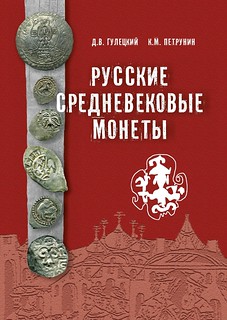 4th edition of standard catalogue of medieval coins (X-XVI cc) minted in Kievan Rus, feudal duchies of Rus and grand duchy of Lithuania. The book is a classic reference guide for scientists and collectors. Mintage of vast nations and cities of Eastern Europe is structured by types and varieties, with rarity grades given to each position.
4th edition of standard catalogue of medieval coins (X-XVI cc) minted in Kievan Rus, feudal duchies of Rus and grand duchy of Lithuania. The book is a classic reference guide for scientists and collectors. Mintage of vast nations and cities of Eastern Europe is structured by types and varieties, with rarity grades given to each position.
More than 670 a4 size pages, hard cover, color photos 2:1. researchers and collectors.
A separate chapter covers Silver and golden ingots, with detailed photos and metric data. Each chapter contains links and references to most advanced studies on separate coin types. Edition of 2022 continues the series of catalogues started in 2013. More than 70 new types and varieties of coins and countermarks are added as compared to the previous edition, more than 200 images updated.
Catalogue structure and numeration remain same as in previous book, widely used and cited by researchers and collectors.
NEW BOOK: A NAPOLEONIC MEDAL PRIMER
David Alexander has published a new book on Napoleonic medals. -Editor
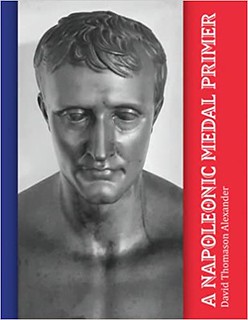 Medals recording the meteoric career of Napoleon Bonaparte have fascinated collectors for more than two centuries. The Monnaie de Paris has produced the majority of existing Napoleonic pieces and continues striking many today, including many such later issues as the 1840 Retour des Cendres and the 2021 Bicentenary of the Emperor's death. In all this time there has never been a comprehensive English language survey of the Napoleonic series to introduce the American collector to this fascinating subject. This book does not pretend to include every Napoleonic medal ever issued, but presents a survey to aid beginning or advanced collectors wishing to explore this fascinating field.
Medals recording the meteoric career of Napoleon Bonaparte have fascinated collectors for more than two centuries. The Monnaie de Paris has produced the majority of existing Napoleonic pieces and continues striking many today, including many such later issues as the 1840 Retour des Cendres and the 2021 Bicentenary of the Emperor's death. In all this time there has never been a comprehensive English language survey of the Napoleonic series to introduce the American collector to this fascinating subject. This book does not pretend to include every Napoleonic medal ever issued, but presents a survey to aid beginning or advanced collectors wishing to explore this fascinating field.
The title, The Napoleonic Medal Primer, has been chosen to express what this book is and is
not. Napoléon Bonaparte (born 1769, died 1821) bestrode the world of his day like a colossus
and left behind one of history's most extensive medallic fossil records
which has continued to
grow centuries after his death on the remote South Atlantic island of Saint Helena.
This book will offer an introduction to and survey of medals of Napoleonic interest from the
French Revolution to modern times, and is directed in large measure toward American collectors.
The term Primer,
pronounced Primmer
in the UK and Pry-mer
in the U.S., has been chosen
to avoid suggesting that this is an encyclopedic coverage of all Napoleonic material, which would
include significantly more medals than can be covered here.
This work is initially built on medals that the author has personally collected, examined,
cataloged and recorded since the early 1950s, in other words, a record of what is known to exist.
The text is directed toward but not certainly limited to the particular needs of both beginning
and experienced collectors, including a basic medallic vocabulary, to present and clarify the use
of terms that often baffle collectors coming over from the world of coins. Particular attention
will be paid to clarifying the restrike
issue, contrasting Paris Mint practice with the limited and
restrictive American understanding of this troublesome term.
Similarly, the critical role of PATINAS used on Copper and Bronze medals over the centuries will be addressed, along with description of the all-important EDGE MARKINGS of Paris Mint medals and their relation to dating
Author David Thomason Alexander became interested in medals in the 1950s. He founded Medal Collectors of America in 1998 as the first American organization devoted to collectors of U.S. and world art and commemorative medals. His earlier works include American Art Medals 1909-1995 (American Numismatic Society, 1995) and Medals of the Hall of Fame for Great Americans... an Under-utilized Resource in American Medallic Art (Newman Numismatic Portal, 2019).
ASIN : B0BLCQ5R9N
Publisher : Independently published (November 2, 2022)
Language : English
Paperback : 189 pages
ISBN-13 : 979-8359099264
Item Weight : 1.24 pounds
Dimensions : 8.5 x 0.45 x 11 inches
Author Alexander adds:
"It is an endless question why this has not been attempted before in modern times... In describing his pioneer work with U.S, Presidential Inaugural Medals, the late Joe Levine stated his belief that the American collector shied away from open-ended medal areas, vastly preferring series with clear beginnings and endings. Hopefully we'll attract collectors motivated by this idea!
"Thanks are due to Lianna Spurrier, our compositor and layout genius, to whose marvelous skill we owe Napoleon's success!"
For more information, or to order, see:
A Napoleonic Medal Primer Paperback
(https://www.amazon.com/Napoleonic-Medal-Primer-Thomason-Alexander/dp/B0BLCQ5R9N/ref=sr_1_1)
To read on the Newman Numismatic Portal, see:
A Napoleonic Medal Primer
(https://nnp.wustl.edu/library/book/618630)
SPINK INSIDER WINTER 2022
The Winter 2022 issue of the SPINK Insider has been published. The London firm's house organ is available in print form as well as a free download. Great cover photo and a number of interesting articles. The articles cover a wide range of numismatics, including coins, medals, paper money and finds by metal detectorists and mudlarks.
CONTENTS
Forthcoming Events
London News
The Story Behind the Stamp
by Tom Fell
Spotlight on Collecting: Whisky
by Daniel Lam
Searching for the Next Henry III Gold Penny
by Graham Birch
A Day in the Field
by Gavin Toovey
Northern Ireland Banknotes: are they a threatened species?
by Jonathan Callaway
Trick of the Light
by Annabel Schooling
Engraving is More than Banknotes and Stamps
by Martin Morck
The Civil War Hoard and Hunting its History with Friends
by Matt Brown
Mudlarking on the Thames
by Alice Castle
Tiny Traces: African and Asian Children at London's Foundling Hospital
by Kathleen Palmer and Hannah Dennett
Return to Waterloo
by Hattie Ford
Castellum Editions
by Guillaume Daussin
Britain's ‘First' Memorial Coins
by Gregory Edmund
1666 and All That
by Gregory Edmund
The Man Behind the Medal
Insider Travel: the Bay of Naples and Pompeii
One of the articles could portend a new wrinkle in the numismatic business - or not. New technologies often find their way into numismatics sooner or later, as we've seen with digital photography, internet auctions, physical bitcoins and recently non-fungible tokens or NFTs. SPINK is rolling out a Digital Ownership Token (Fusion DOT) to associate ownership rights with physical collectibles, in this case photographic prints. Will something like this come to the world of slabs? -Editor
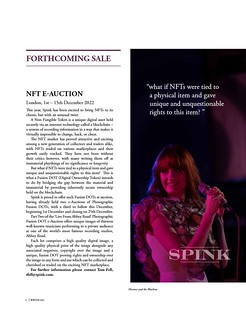 This year, Spink has been excited to bring NFTs to its
clients, but with an unusual twist.
This year, Spink has been excited to bring NFTs to its
clients, but with an unusual twist.
A Non Fungible Token is a unique digital asset held securely via an internet technology called a blockchain – a system of recording information in a way that makes it virtually impossible to change, hack, or cheat. The NFT market has proved attractive and exciting among a new generation of collectors and traders alike, with NFTs traded on various marketplaces and their growth easily tracked. They have not been without their critics however, with many writing them off as immaterial playthings of no significance or longevity. But what if NFTs were tied to a physical item and gave unique and unquestionable rights to this item? This is what a Fusion DOT (Digital Ownership Token) intends to do by bridging the gap between the material and immaterial by providing inherently secure ownership held on the blockchain.
Spink is proud to offer such Fusion DOTs at auction, having already held two e-Auctions of Photographic Fusion DOTs, with a third to follow this December, beginning 1st December and closing on 25th December. Part Two of the ‘Live From Abbey Road' Photographic Fusion DOT e-Auction offers unique images of thirteen well-known musicians performing to a private audience at one of the world's most famous recording studios, Abbey Road.
Each lot comprises a high quality digital image, a high quality physical print of the image alongside any associated negatives, copyright over the image and a unique, fusion DOT proving rights and ownership over the image in any form and use which can be collected and cherished or traded on the exciting NFT marketplace.
To read the complete issue, see:
https://insider.spink.com/
https://storage.spink.com/source/Insider/Insider44.pdf
ERNEST JOHN MONTGOMERY MD (1935-2019)
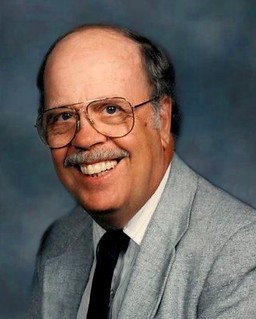 He passed a few years ago, but I just learned this week that fellow Pittsburgh-area collector Dr. Ernie Montgomery is gone. I'd lost touch with him after we both moved out of the city. Thanks to Larry Dziubek who notified me of a notice in the Civil War Era Numismatics journal. A fellow member of The Sphinx Society, "Doc" was a regular with wide collecting interests. In addition to Civil War tokens, I know he collected half cents, Chinese paper money and model trains, having a massive train setup in his Natrona Heights home.
He passed a few years ago, but I just learned this week that fellow Pittsburgh-area collector Dr. Ernie Montgomery is gone. I'd lost touch with him after we both moved out of the city. Thanks to Larry Dziubek who notified me of a notice in the Civil War Era Numismatics journal. A fellow member of The Sphinx Society, "Doc" was a regular with wide collecting interests. In addition to Civil War tokens, I know he collected half cents, Chinese paper money and model trains, having a massive train setup in his Natrona Heights home.
Fellow Sphinx member Ed Krivoniak writes:
"Ernie and I used to get into arguments about coins during Sphinx meetings. That is what he remembered when we met a few years ago. When he was liquidating his collection he did sell me a really nice Feuchtwanger cent. The Confederate half dollar token that I sold you also came from him."
I remember him displaying his half cent collection at a meeting in a Capitol Plastics holder (those were the pre-slabbing days). Heritage sold his half cents in August 1997. Above is an 1840 original bought in that sale by another Pittsburgher, Jim McGuigan.
Here's what Heritage wrote when they sold his Chinese banknotes in December 2020:
Dr. Ernest J. Montgomery's collection of Chinese banknotes is the result of many years of careful study and patience, through which he impressively acquired over 95 percent of the issued notes from the early People's Bank of China series, to include four of the six rarities from the challenging 1951 Outer Province Issues, which were limited to circulation in the remote outer provinces of Inner Mongolia and Xinjiang.
In the formation of his collection, Ernest had an objective of obtaining quality examples of each of these notes. The extraordinarily well-preserved examples he acquired are a testament to his success in this endeavor, with a large portion of this collection landing in the top 10 percent of grades registered in the PMG Population Report, and with the majority achieving the Exceptional Paper Quality designation.
To read the complete article, see:
Heritage Offers Ernest J. Montgomery, M.D. Collection of Chinese Banknotes
(https://coinweek.com/auctions-news/heritage-offers-ernest-j-montgomery-m-d-collection-of-chinese-banknotes/)
To his online obituary, see:
Ernest John Montgomery MD
(https://www.dignitymemorial.com/obituaries/las-vegas-nv/ernest-montgomery-8200080)
To read the complete lot description, see:
1840 B-1a Original Half Cent, PR65 Brown
(https://coins.ha.com/itm/proof-half-cents/1840-original-b-1a-c-po1-low-r6-pr65-brown-pcgs-our-eac-grade-pr60-cac/a/1348-3129.s)
THE BOOK BAZARRE
BRIAN CORNWELL (1940-2022)
A Canadian Coin News article by Jesse Robitaille reports on the passing of ICCS founder Brian Cornwell. With permission, we're republishing a preview here. Thank you. The complete story is available to CCN subscribers. -Editor
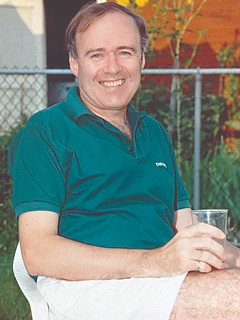 Tributes have poured in for numismatic icon Brian Cornwell, who nearly 40 years ago revolutionized the Canadian hobby by co-founding the country's first third-party grading service, following his death this fall.
Tributes have poured in for numismatic icon Brian Cornwell, who nearly 40 years ago revolutionized the Canadian hobby by co-founding the country's first third-party grading service, following his death this fall.
A long-time collector, Cornwell teamed up with two well-known dealers, Bill Cross and Ingrid Smith, to launch the International Coin Certification Service (ICCS) in Toronto in November 1986. The firm quickly followed in the footsteps of the U.S.-based Professional Coin Grading Service (PCGS), founded in the same year, to improve market confidence and bolster the hobby in Canada. Smith eventually left ICCS before Cross sold his shares to Cornwell, who ran the business for about two decades before his death on Nov. 21 at age 82.
Brian was the driving force behind ICCS, and he was a giant in the industry,
said dealer Sandy Campbell, the owner of Proof Positive Coins in Baddeck, N.S., who met Cornwell in 1982.
Aside from the Internet, nothing even comes close
to the significant positive influence third-party grading had on the hobby in the modern era, Campbell added.
The Internet definitely changed how things are marketed, but third-party grading solidified the industry and allowed it to expand to a broader market base.
Cornwell leaves a twofold legacy in Canadian numismatics, according to Campbell.
He revolutionized the grading process, especially for higher-end Mint-State coins, and he developed a methodology to determine market values with a combination of grade and eye-appeal.
Through his work, Cornwell also encouraged collectors to approach numismatic items almost as pieces of art,
Campbell added.
You could have two items that were the same grade, but one of them had totally different merits because of eye-appeal and overall desirability. He shed a lot of light on that through his 40-plus years in the industry, and that's really his lasting legacy: ICCS became the watchdog in Canada for grading, and it created a safe third-party opinion for people to buy and sell coins.
A COLLECTOR TURNED GRADER
Born in Vancouver on Oct. 14, 1940, Cornwell moved east to attend the University of Toronto.
He earned his bachelor's degree in engineering physics in 1962 followed by his master's in electrical engineering a year later. In 1964, he became a registered professional engineer in Ontario and quickly found work with International Business Machines (IBM), a multinational technology corporation that opened its Toronto plant nearly half a century earlier.
At that time, when you graduated as an engineer, you either went into the space program or the computer business,
Scott Cornwell said of his father's career, which would follow the computer path until his retirement in 1981.
Cornwell stayed with IBM until the late 1960s before moving to a pair of start-up firms, including Systems Dimensions Limited, a computer consulting company, and SHL Systemhouse, a systems integration business.
He returned to his childhood hobby of numismatics in the 1970s, forming relationships with fellow numismatists Jim Charlton, who began publishing his namesake catalogues in the early 1950s, and Chet Krause, who founded CCN's predecessor Canada Coin News in 1963.
It was his second love apart from being married,
said son Scott, who has managed ICCS for the past four years. He became interested in coins as a kid, as most collectors do, but when he retired from the computer business at age 40, he found himself bored with little to do, so he picked up his hobby again. He gravitated towards the finest, the rarest, the best that he could get. Beautiful coins are always in the eye of the beholder, but that was his passion.
Owing to his education and ensuing career in the early days of the computer business, Cornwell was more or less like a scientist,
according to his son.
He had a very analytical mind, and when it came to grading coins, it was from that perspective he was able to detach himself from the greed factor and analyze coins for wear, lustre, surface strikes and everything else. He liked the analysis of grading coins.
While the 70-point grading scale originated in 1949, Cornwell applied that concept to Canadian coins for the first time.
To read the complete article, see:
ICCS founder Brian Cornwell remembered for grading legacy
(https://canadiancoinnews.com/iccs-founder-brian-cornwell-remembered-for-grading-legacy/)
TEICHMAN CREATES JUDD PATTERN PHOTO SETS
The latest additions to the Newman Numismatic Portal are photo sets of U.S. pattern coins. Project Coordinator Len Augsburger provided the following report. -Editor
Saul Teichman Creates Judd Pattern Photo Sets
The Judd reference on U.S. patterns, United States Pattern Coins, is well-known and currently in its 10th edition. Saul Teichman is a longstanding contributor to this Whitman Publications reference, which is currently authored by Q. David Bowers. Teichman has now released over 200 photo sets that depict and trace the rarest examples in the series. This extensive effort includes hundred of pedigrees and will serve as an indispensable companion to the Judd volume. Internet presentation is a natural format for works of this nature, which are otherwise impractical for print production. Representing thousands of hours of research from a careful and detail-oriented observer, collectors and cataloguers of the pattern series will no doubt frequently access this new and valuable resource.
Image: Shield Earring quarter dollar in copper, Judd-1699. From the Eric P. Newman Collection, part I (Heritage Auctions, April 2013), lot 4036, realized $31,725. This coin is example #7 in the Teichman census.
Saul adds:
"Please note that if anyone has questions, they can ping me at saul.teichman@ey.com."
Link to Judd Pattern Photo Sets on NNP:
https://nnp.wustl.edu/library/archivedetail/548148
Link to United States Pattern Coins at Whitman Publishing:
https://whitman.com/united-states-pattern-coins-10th-edition/
VIDEO: ERIC P. NEWMAN
The David Lisot Video Library on the Newman Numismatic Portal can be found at:
https://nnp.wustl.edu/library/multimediadetail/522852
We highlight one of his videos each week in The E-Sylum. Here's one from 1986 with Eric P. Newman himself. -Editor
ANA Numismatic Personality: Eric Newman David Lisot, Interviewer.
Eric discusses his numismatic writing, how he began collecting, and meeting Burdette G, Johnson of the St. Louis Coin Company. He was buying Pine Tree shillings for $15-20 dollars before going off to college, later knowing dealers Henry Chapman, D.C. Wismer, Wayte Raymond, B. Max Mehl, Tom Elder and collectors Fred Boyd, William Clark, Howland Wood, and Col. E.H.R. Green. "I've had a very full life in numismatics as an intellectual pursuit." -Editor
To watch the complete video, see:
https://nnp.wustl.edu/library/book/557351
MORE ON THE CASTORLAND HOARD
Roger Siboni submitted these comments on the "Castorland Hoard" mentioned at one time by dealer Lester Merkin. -Editor
Like Alan Weinberg, I too have heard the stories of and read the articles and snippets of the Merkin Castorland hoard
. But after talking to a few people that worked closely with Merkin and even were active Castorland Jetton Collectors at the time.
The so-called Merkin hoard
of originals out of France or otherwise never materialized and is clearly not present in the extant population that has been researched so far. Several have been working on a census of so-called Simon pure
Castorland Jettons (a name assigned by John J. Ford from the Sussana Centlivre's play A Bold Stroke for a Wife
(1718) referring to something of untainted purity or integrity).
The pure originals with essentially no spalling or die breaks (see last blog post) are still quite rare in Silver or Copper. There was one piece illustrated in the October 2007 MCA issue from the curator of Rochester Numismatic Association allegedly handed down from the Duvivier family. But certainly no hoard.
That does not mean a hoard can still not exist. But Auction records, articles going back decades and present collections (American and French) don't reflect any such hoard.
If one of your readers knows of such a hoard (IRL), I would greatly appreciate hearing about it.
Here are Chester Sullivan's thoughts. -Editor
I was delighted to read Alan V. Weinberg's story about the Old French Family Hoard of Castorland jetons. He told me about the Hoard in 2014, and reading his comment refreshed many pleasant memories.
My Castorland involvement began in 1965. I was a GI on leave in Paris when I bought one as a souvenir. Many years later, 2014, I showed it to a dealer who suggested I consult Sydney Martin, editor of the C4 Newsletter. Syd helped me write an appeal for research assistance. He ran the notice in the C4 Newsletter and it attracted good responses, not the least of which was Weinberg's story about the Old French Family Hoard. Syd's notice also garnered an invitation from Tony Terranova to view his personal specimens, and that coincided nicely with my first visit to the C4 annual meeting in Baltimore. A club member opined the Castorlands were cool coins but they never went up in value. Another member said mine was a token. Another said it might be a restrike. Then a man tipped me there were three Castorlands on eBay, offered by a seller in France. That seemed to confirm Alan's French Hoard story, whetting my appetite. The man said the French seller was actually a woman, fiercely private, who absolutely would not allow him to reveal her identity. This would've been material for a novel and if I'd known who she was or where she was I would've gone to find her.
My souvenir coin became an obsession. I studied photographs of Castorland jetons in the Heritage Auction Archive. I pored over catalogue descriptions comparing them to the eBay specimens which were: PCGS 653.58/2963922, 653.60/2963920, and 653.61/2963921. Those eBay coins didn't sell as a trio. Later they were offered individually, and in time they stopped showing up on eBay so I figured someone bought them. By then I was actively following European auctions and I saw them in a Maison Palombo Geneva auction (21/11/2015), but they didn't sell. I contacted Maison Palombo. After a lot of wheedling, I got contact information for their consigner and tracked him down. He'd consigned them to a Delcampe Auction (Feb. 16, 2016). Again, they didn't sell.
The consigner, M. Saadallah, was not a reclusive French woman from an old family. He was a congenial eBay merchant living with his wife and two sons in Jouques, France. He told me he'd bought the Castorlands raw in a bric-a-brac auction where they were listed as Three Old French Coins. He had them certified by PCGS, and apparently neither their consignor in the bric-a-brac auction nor the auctioneer knew what they were.
Were they remnants of the French hoard? Who was their owner, perhaps someone who found them in a grandparents' desk? Or maybe the consigner to the bric-a-brac auction was a notary settling an estate. What did M. Saadallah pay for them? Not much I suppose, but I didn't think it appropriate to ask. I remembered the C4 member's observation that Castorlands don't go up in value. Maybe. A survey of Heritage Auction sales shows the highest price fetched by a Castorland jeton was $16,100.00 on June 3, 2007. That coin sold for $11,500.00 on May 29, 2008, and it sold for $12,075.00 on June 7, 2010, which is a 25% percent drop from its high. Who knows where it is now--maybe the Hoard story lingers, depressing the market.
Thanks, everyone, -Editor
To read the complete article, see:
NOTES FROM E-SYLUM READERS: DECEMBER 18, 2022 : Castorland Silver Originals
(https://www.coinbooks.org/v25/esylum_v25n51a08.html)
ON THE GODDESS OF SCIENCE & INDUSTRY
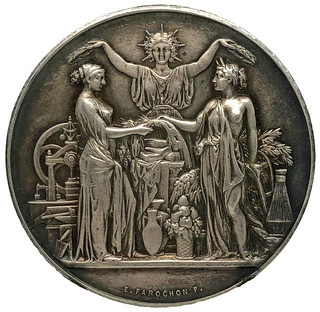 Last week Alan Luedeking wrote:
Last week Alan Luedeking wrote:
"The discussion reminded me of the following medal, whose reverse bears the figures of Marianne of France presumably crowning the goddess of Science and Industry on the left, and Ceres, goddess of Agriculture and Abundance on the right, engraved by Jean Baptiste Eugène Farochon, a design that was used on several French medals from 1864 until at least 1955. I would very much like to know the name of the goddess on the left, the one of science and industry. Thank you!"
Pete Smith was the first to respond, with a one-word reply of "Minerva". -Editor
Ken Berger writes:
"I was very surprised to read that Alan Luedeking needed help in determining the name of the Goddess of Science & Industry. A simple Google search was all that was needed. The answer is Minerva."
B.J. Herbison writes:
"I'm probably not the first to reply, but Minerva would be the goddess of Science and Industry. It's not the standard Roman representation of Minerva but no other goddess qualifies."
Pete Smith gave it some more thought and followed up with this response. -Editor
An entry in The E-Sylum had a picture of a medal by Jean-Baptiste Eugene Farochon and the
comment, I would very much like to know the name of the goddess on the left, the one of
science and industry.
Within five minutes I had sent my response back to Wayne, Minerva.
I
then spent several sleepless hours struggling with my answer. I believe it was technically correct
but inappropriate. I don't believe Minerva appears on the medal. I also have some doubts about
Marianne.
Minerva and Marianne never met. Allegorical figures may be identified by their attributes and Marianne often took on the attributes of Minerva. Without being told who is represented, it would be easy to confuse the two.
The Roman Minerva is equivalent to the Greek Athena and both are seen with owls. A combative Minerva has armor, a helmet and spear. The figure on he left of the medal has none of the attributes of Minerva. Marianne on the medal wears a radiant crown, an attribute for Liberty and would represent the French Republic.
The figure on the left has the attributes of machinery which, in different context, might represent Manufacturing or Industry. It has none of the attributes of Science.
The Roman Ceres is the equivalent of the Greek Demeter. The medal has the personification of Agriculture on the right. Agriculture and Ceres share some attributes but Agriculture lacks some of the attributes that make Ceres distinctive. The woman on the medal is more youthful than the matronly Ceres.
The Farochon image is reused for a variety of prize medals. I found three that illustrate the reuse of a theme with a reverse message that does not relate to the obverse image.
This silver medal mentions Manufacturing but makes no reference to Agriculture.
This bronze medal refers to a five-year warrantee with no reference to Industry or Agriculture.
There is a reverse for the Society of Civil Engineers with the translated text stating they were recognized as a public utility by imperial decree. An imperial decree might justify presentation by Marianne. Would she be equally appropriate to present an award to a prize bull at a county fair? How do Industry and Agriculture relate to Civil Engineering?
I am bothered that one side of the medal has no apparent relationship to the other. Is the iconography still valid? Would it be correct to describe this as Marianne presenting an award to Industry and Agriculture when the other side is not an award for Industry or Agriculture. At some point it is just a pretty picture with no relevance.
I am bothered that I can't identify the purpose for the medal shown in The E-Sylum. How did the personifications relate to that medal?
Manufacturing and Agriculture are two types of productivity that might be honored at a fair or exposition. Some have prize medals that are unique for that event. Some, like these, use a generic image for the obverse with a custom reverse.
In my opinion, the two women standing at the sides are personifications of Industry and Agriculture and not Minerva and Ceres.
I shared everyone's responses with Alan Luedeking, and here are his thoughts. -Editor
The reason for my question was precisely the fact that I was not confident of the attribution to Minerva. I very much appreciate Pete Smith's carefully reasoned reply. But he need not fret over the relationship (or lack thereof) between the obverses and reverses of the medals that sport this die. There is none. I know this from the research I originally did on the extremely rare General Edward Porter Alexander medal that was awarded to him by Nicaragua in 1900. That medal used this same die for the reverse. In my article on the Alexander piece, I wrote the following:
"Returning to the design of the Alexander medal, the Nicaraguan government undoubtedly wanted to save some of the manufacturing costs by commissioning A. Godard of Paris to create only one die (the obverse) and was content to use for the reverse a generic die already extant for other medals. This is evident from the fact that the obverse was custom made by engraver A. Godard whereas the reverse was made by Jean Baptiste Eugène Farochon, who was born in Paris on March 10, 1812 and died on July 1, 1871. Obviously then, engraver Farochon could not have engraved the reverse of Alexander's medal when it was only ordered in 1900. Furthermore, if the Paris engravers had been ordered to design the complete medal (i.e., both sides of same), the Godard firm would undoubtedly have assigned the project to the same engraver (in this case perhaps Godard himself) and not to two different engravers. As proof of these assumptions, let us look at the example below of a French commemorative silver medal that antedates the medal made for General Alexander by eight years. In this piece we see the same die by Farochon that was used for the reverse of the 1900 Alexander medal being used for the obverse of this silver medal issued in 1892, twenty-one years after Farochon's death, and eight years before the commissioning of the Alexander medal: [image of the medal follows]
Thus, we can assert with complete confidence that the Republic of Nicaragua was content to save money on Alexander's medal by only commissioning the die for the obverse side of it and using the generic and unrelated but very attractive die created by Farochon for the reverse of the medal. In our opinion, engraver Godard did a fine job of assembling the desired elements ordered by Nicaragua onto this one side of the medal... [etc.]"
Thanks again to all who gave this some thought.
Thanks, everyone. -Editor
To read the earlier E-Sylum article, see:
NOTES FROM E-SYLUM READERS: DECEMBER 18, 2022 : Query: Goddess of Science and Industry
(https://www.coinbooks.org/v25/esylum_v25n51a08.html)
NOTES FROM E-SYLUM READERS: DECEMBER 25, 2022
Another Coin Gift Christmas Card
Tony Tumonis at Glass Shoppe coins, Tucson writes:
"Here is a coin gift Christmas card that I have, that is kind of neat. Merry Christmas!"
Very cool. Thanks! -Editor
To read the earlier E-Sylum article, see:
A COIN GIFT CHRISTMAS CARD
(https://www.coinbooks.org/v25/esylum_v25n51a05.html)
A Note From Eric Hodge
Eric Hodge writes:
"Compliments of the season to you and yours Wayne. Thank you also for such an interesting year of a weekly diet of coin facts to feed the soul. I feel totally nourished and ready to face 2023. Very best wishes. "
Thank you! Merry Christmas and Happy New Year to all. -Editor
Ted Banning's Numismatic Christmas Card
Here's a great numismatic Christmas card sent along by Ted Banning. Thanks. -Editor
Portraits of Engraver Robert Lovett Sr. and his Wife
Dave Baldwin writes:
"Through a generous and kind gesture by Katie (Jaeger) DeSilva I was able to add two wonderful pieces to my collection of works by Robert Lovett Sr. and sons. Pictured below are original miniature portraits of Robert Sr. and his wife Anna Doubleday. Katie is a direct descendant of Robert through his son George Hampden Lovett and these had been handed down through the family to Katie. The following is an assessment of these portrait " Matching miniature portraits, oil on ivory, in blackwood frames trimmed in brass, with glass covering the portraits. Portrait ovals measure 3" high x 2-1/2" wide. Frames measure 5-1/2" high by 4-7/8" wide. Artist, though clearly a highly skilled miniature portraitist likely graduated from the National Academy of Design, is unidentified. Painted between 1824-1840. Portraits assessment provided by Dr. William Gerdts, Professor Emeritus of CUNY Graduate Center and Carrie Rebora Barrett, American Paintings Curator of the Metropolitan Museum of Art. "
"Katie co-authored "100 Greatest American Tokens And Medals" with Q. David Bowers published by Whitman Publishing in 2007. She was author of "A Guide Book of United States Tokens and Medals" published by Whitman in 2008, as well as numerous other articles in numismatic publications. In 2006 she recieved the ANA Heath Literary Award and in 2007 the Wayte and Olga Raymond Literary Award. And was an inspiration to me in my early collecting endeavors."
Very nice! -Editor
DOING YOUR OWN NATIONAL ARCHIVE RESEARCH
Author Roger Burdette spends a great deal of time researching at the National Archives and Records Administration (NARA) and assisting the Newman Numismatic Portal in acquiring digitized records. Here's his advice on using NARA materials on NNP in research. He notes "It intentionally avoids details - largely because there is an immense amount of material not digitized, and even less has been transcribed." -Editor
Doing your own National Archive research
With more US Mint Bureau documents becoming available on-line through the Newman Numismatic Portal (NNP), it seems a good time to give those doing numismatic research a little guidance. This will show how various groups of documents are connected and suggest which files to search for letters relating to specific events or persons.
The information will help researchers look through thousands of documents without have to spend weeks at NARA locations thumbing through thick volumes and overstuffed file boxes.
What you will find: Connections between archive files. Transcriptions of some documents.
What you will not find: Transcriptions of everything.
Access: All materials are available for free via NNP to read or download.
Basic files in Record Group 104 U.S. Mint ––
For letters from 1873 to 1900 the overall search flow is:
1. Start with Entry 1. These are in chronological order and many are transcribed. Search by subject or approximate date.
2. Once something of interest is found, go to E-235 and look for the volumes covering the date on your item. Look both before and after this date. There is also an index by author for many of these volumes, but it is useless for subjects.
3. Next look in Entry 6 around the date of your item and see if there are any letters between Mint Departments that relate to your subject. Do the same with Entry 17.
4. Go to Entry 229 and search it in the same manner.
These entries have documents that are frequently interconnected, such as a letter sent and its reply, or private comment on a subject by the Coiner or Secretary of Treasury. By searching through the 4 steps, above, users should be able to locate about 80% of extant materials relating to an individual, situation or subject.
- Entry 1 General Correspondence, 1792-1899. (Completely digitized. Transcribed from 1885 to 1899.)
- Entry 235 Letters sent by the Director to other mint facilities and individuals (1873-1937). Digitized April 1873 to April 1893, more to come.
- Entry 6 Letters between Philadelphia Mint departments and also those sent by the Superintendent to the Director. (Digitized from October 1, 1866 to October 1889, more to come.)
- Entry 17 Letters received by the Philadelphia Mint Superintendent from the Coiner 1877-1900 Completely digitized.
- Entry 229 Letters received by Mint HQ from other mint facilities and individuals. Digitized intermittently 1875 to 1900, more to come.
For earlier letters and subjects up to 1873 the overall flow is less well defined.
1. Start with Entry 1. These are in chronological order and a few are transcribed. Search by subject or approximate date.
2. Once something of interest is found, go to Entry 3, 215, 216 and 217 depending on items date.
- Entry 1 General Correspondence, 1792-1899. (Completely digitized. Transcribed from 1885 to 1899.)
- Entry 3 Journals 1792 to 1835.
- Entry 215 Letters sent to Branch Mints 1836-1871.
- Entry 216 Letters to and from Secretary of Treasury regarding Branch Mints July 5, 1834 to December 31, 1862.
- Entry 217 Scattered letters about Mints 1865 to 1872.
For coinage quantities look in Entry 271 for reported quantities and especially for any condemned deliveries. Use Entry 330 for exact delivery dates and quantities from about 1916 forward to 1947. The latter has large gaps, which will gradually be filled as time permits.
- Entry 271 Monthly coinage by Mint July 1875 to June 1906. Completely digitized.
- Entry 330 Cashier's Daily Statements. Intermittently digitized from 1916 to 1947. Year 1900 is in E-229 as extracted from correspondence.
Coinage, die use and many other subjects are mixed into the entries mentioned. Also the Entry 3 journals include copies of annual reports and letters in their original form that are not available elsewhere.
To access NARA records on NNP, see:
https://nnp.wustl.edu/Library/Archives?searchLetter=U
VOCABULARY TERM: MEDALLIC OBJECT
Here's another entry from Dick Johnson's Encyclopedia of Coin and Medal Terminology. -Editor
Medallic Object. A work of art inspired by the medallic genre. There are few restrictions on medallic objects or their creation, other than perhaps, they must be permanent, capable of being reproduced, usually made of metal and, in most issues, have multiple sides. Other than that they are as removed from medals, as medals are from coins (which are overburdened with restrictions, as size, weight, denomination, tolerance, height of relief, coinability, vending machine suitability, recognizability, circleness, nationalistic propriety, surface resistivity, shall I go on?). Medallic objects break the rules of coin and medal design, go beyond any limitations, transcend any technical restraint, overcome medallic prejudice, all the while becoming interesting, aesthetic objects for the eye to behold.
Usually medallic objects are free-standing; indeed, they have been called standing medallic art.
But to stand alone is not even a requirement. They are not small statues, they are not upright or overgrown medallions – medallic objects are a new sculptural entity that has yet to find their niche in the art or numismatic world. The painter considers his art in color and shadows. The sculptor considers his art in forms and planes. The medallist considers his art in relief and miniature size. But the creators of medallic objects, while they may be guided by the precepts of these graphic and glyptic arts, are not bound by restrictions of any art.
If medallic objects have sculptural tridemensionality it is only incidental. They are more apt to have relief or two sides, a front and a back (I won't use the numismatic terms obverse and reverse) for their duodimensionality is often apparent only when shown in photographs (and the field is too new yet to have its own terminology). However, they could have relief designs on more than two sides.
If I had to characterize their form I would say medallic objects are bas-relief unleashed.
Shape and Technique In New Concepts Medallic objects often have unusual shapes or negative space. They go beyond the edges of a prescribed planchet with hyperdimensionality. Very often they have adornments, or as the French say, enrichies; they are enameled, bejeweled, and some practitioners, like Roger Bezombes, have added clothing buttons or made a bird of scissors. Dali made one of table spoons.
Artifacts of any kind – found or fashioned – are fair game for embellishing medallic objects. Set free the artist's imagination. Unleashed is the operative word. Medallic objects are the modern art of the medallic field.
If the object can be diestruck, that's fine. If it cannot then it must be cast, that's okay too. If it has to be assembled or fabricated or soldered together, there is nothing wrong with that either. Technique is dealer's choice. The only one restriction, mentioned earlier, is important: it must be reproducible for permanent form.
Even the most severe restrictions for preparing coin and medal models – no undercuts and no steep-pitched relief – is negated here. No problem. Eliminate all lettering? That's permissible. Its all image. But the image must be conveyed in hard form.
Thus medallic objects must be reproducible. They can be fashioned by any method, manufactured by flexible molds or lost wax or ceramic mold or any of a dozen methods of casting or fabricating or even, as stated, by die striking.
The new genre encourages new ideas, new concepts, new techniques, new ways of doing something within a 500-year-old glyptic art field, and a 2600-year-old numismatic field. We have proof finish coins today because a proof surface was first tried on medals (Pitt Club Medal, London, 1762). The first hologram in a work of art appeared in a medal, Yaacov Agam's And There Was Light Medal (Israel, 196x). Medallic objects advance the cutting edge of medallic technology, a precursor of new things that can be accomplished, perhaps, for a medal or coin of the future, tried first on a medallic object.
Unleashed Medallic Creations Medallic objects are issued in editions, usually less than 150, sometimes more, occasionally in precious metal, more often in bronze. The bronze is never intentionally left undone, however something is usually wedded to the surface by way of patina, finish or embellishment – or a combination of these.
Creation of the surface, by modeling, carving or making a MODULATED RELIEF in any manner, is only part of the inspirational bloom of medallic objects. It is only the skin. Their creator is never quite satisfied with naked skin. He or she has an entire paint box of techniques and treatments – texture and colors! – that can clothe the newborn creation.
The artist giving birth to a medallic object thus must have a knowledge far above that of, say, a hand engraver or a sculptor creating a coin model, or a modeller of a modern medal. Such an artist must possess multiple talents of creative insight and inspiration, plus a wide understanding of spacial relationships, medal manufacturing technology, and metalworking techniques. Thus his ideas must be translated into a hard-form pattern. For his ideal three-dimensional image must be reproducible.
Always this artist must rise above that status of creator/technician and produce an object of his hand and mind that excites the viewer. The results often titillates the devotee of this work. Wow! Look at that!
is often heard at exhibitions of medallic objects.
Testing Ground for Medalists Appropriately, medallic objects are a testing ground of what can be done in the medallic field, often before it is applied to a formal commission. If the technique works, then that's fine; it can then be incorporated in a future creation, paid or unpaid, commissioned or on speculation.
If the new technique doesn't work, that's fine too. The experiment was tried at an artistic level where it was not necessarily exposed before a jury of medallic peers and five hundred years of art medal heritage, or a couple millimums of coinage heritage. It adds to the artist's total knowledge. The experience fine tunes the boundaries to which the artist can push the limits of the emerging art. He is advancing toward the cutting edge.
We learn by trying. We advance by failure. Medallic objects are welcomed into the arena wherein the field of medallic art will advance in the future.
The next multipart medal, or ball-tip arm, or cartwheel rim, or split collar, or reeded edge, or swivel loop, or proof finish, or impressed artifact, or embedded hologram, or multi-ring planchet, or colorized surface, or any of the thousands of developments – large and small – in the field of coin and medal technology is destined to appear first on a medallic object. And so it should be.
Such new innovations come from stretched imaginations. What could be some of these developments of the future? Let your imagination run wild.
Can you bury a sound chip in a medal and have a talking medal? No need for a leaflet–the chip could provide a history, data about the artist, the makers, and the reason for the medal's issuance. Or simply tell a story, illustrated, of course, by the bas-relief in which it is housed.
How about a new way of attaching a medal to a person, as award, honor, or adornment. (How would you replace the pinback, the ribbon drape, the neck ribbon or the body sash?)
Or a patina on one side smell of, say, burnt wood from the forest fire shown on the obverse, while the reverse gives off the fragrance of the regenerated wild flowers where devastation once occurred.
The inventor of the first medal made from metal fabricated in space will reap a fortune.
The artist's own imagination and innovation prescribe the limits of medallic creations. Unleash the bas-relief is the operative phrase!
American Forays Into Medallic Objects In 1965 an experiment was conducted in New York City, perhaps ahead of its time. The art publication Art In America commissioned a curator then at the Whitney Museum, Edward Bryant, to manage a project of reproduced bas-relief. He sought out William Trees Louth at the Medallic Art Company for the intended replications. The two literally had to invent a new art form!
Choosing seven contemporary sculptors their instructions to them were explicit: express yourself in a bas-relief without restraint that can be reproduced (sound familiar?). The seven reliefs ranged from a traditional Salome (by Elbert Weinberg) to a recasting and rearranging a newspaper printer's plate (by the Greek-American artist Chryssa). The others were quite contemporary: James Wines' Art and the Machine, Harold Tovish's Meshed Faces, Constantino Nivola's Classical Gods, Roy Gussow's Water Over The Edge of a Pool, and Ernest Trova's Falling Man.
Each work was reproduced in an edition of eight in 12- to 15-inch size (sound familiar?). Tovish and Nivola's work were also reproduced in smaller, medallic sizes and formats, even gold pins to be worn. To the credit of the craftsmen at Medallic Art, they knew which to cast by molds, which to reproduce by electrogalvanic casting, which to make into dies and strike.
But what is most notable were the finishes. Gussow's galvano in copper was chromiumplated and highly polished. Nivola's galvano was bronzeplated with black oxidized patina. Tovish's Meshed Faces with three surface levels was given three finishes: the wide border was French antiqued, the faces in the center were reflectively polished, but the background was manually textured. (Foreman of the finishing department could not satisfy a demanding Trovish with sample textures until the craftsman, perhaps in desperation, picked up a beer can opener and etched random pattern of impressed line design in the background copper surface. That's it!
shouted Trova.)
A later foray for American artists in the new media was Roy Lichtenstein's Salute To Airmail and Sidney Simon's Five Heads Plaquette. But these were created in 1968. American artists did little until shown by the French the extensive possibilities of the fresh media. The French, it can be said to the chagrin of the Americans, beat all world artists, including the Americans, to the patent office to lock up the title of innovators of the new invention.
French Mint Influence Credited As old or as young as they are, medallic objects have not yet come of age. Roger Bezombes created his first medallic object in 1966. France, and particularly the Paris Mint, has been their incubator. The Paris Mint's greatest 20th century Mint Director, Pierre DeHaye, certainly had the most profound influence, and should be given much credit for the development of medallic objects.
His artists and craftsmen were creating a new medallic object every new day for the latter part of his tenure as head of the Paris Mint!
Quite reasonably it can be said, the Paris Mint has encouraged the infant art form and helped it along. It has enabled medallic artists to have a free hand in trying something new without restraints that their creation must be commemorative, or celebratory, or memorializing, or honorary, or even pretentious, or whatever the cumulative scope of what a medal must be. Since credit has now been given to the Paris Mint, we can also acknowledge the international organization of medalists and medal publishers, Fédération Internationale de la Médaille (F.I.D.E.M.). Their biannual conclaves have become showcases of what medalists from around the world are currently producing.
What once was biannual displays of circular and nearly square objects has now become a plethora of irregular shapes and medallic formats of great variety. Virtually all new work displayed in medallic exhibitions – F.I.D.E.M. internationally, American Medallic Sculpture Association in America, and similar organizations in Canada, England, Netherlands, Finland and in other countries – can be classed as medallic objects.
New Art to Live With The new media is an ideal collectible. But they are not intended for the collector's cabinet – to co-exist with medallic art of past years. More often they will be found on the mantel, tabletop, bookcase, desktop, or other decorative spot, to be easily seen, never put in a drawer, or, heaven forbid! never in a numismatist's dark drawer cabinet. They must be displayed to be seen, to be appreciated, to be venerated.
The new media is art to live with, to view as a part of life, of decoration, as perhaps, articles of beauty. Medallic objects are more for the living room or library or museum rather than the cabinet tray. Let them be seen!
Never larger than 15 inches, medallic objects resonate as intimate art. Examined close up, they can best be appreciated within arm's reach. In this respect they are much like a coin or medal (none, however, require the magnification glass so necessary for coin enthusiasts or worse yet, the microscope that magnify surface scratches to trench-like proportions).
Because they are such a new art, they have yet to be tested in the crucible of the art public. Their acceptance must yet come from both critic and collector. They should be examined for their beauty, their perception, their newness, their desirability, perhaps, in addition to their content. Medallic objects may have a topic, subject or theme. They may be representational or non objective. They may even be ephemeral medallic beauty – if you wish to call them that – in effect, chewing gum for the eyes.
But should their destiny be assigned to the art field, or to numismatics? To medalists? Or for art collectors? Should their creators be called object medalists? Who will be the market and the makers for the new media?
But For Who? Just what is the charm medallic objects possess? Who wants to own, who wants to acquire these pieces? This is yet to be learned. What we do know is there is wide interest among medallic practitioners around the world. We foresee that once a collector has a taste for medallic objects he will profess addiction.
Like the possession of any collectible, every collector should have one or two medallic objects. Not only will they be conversation pieces for the collector's guests, friends and fellow collectors but perhaps symbolic of their membership in a world-wide network of enthusiasts bound by the new medallic genre.
While building such a collection, the new owners may be acquiring art objects slightly ahead of their time. The medallic field is positioned for some interesting time ahead; medallic objects will certainly be a forerunner of that interest.
Medallic Object Characteristics
1) It Must Be Reproducible.
2) It Must Be Attractive (or Not).
3) There Are No Restrictions On Its Creation.
4) There are No Other Characteristics
References:
A25 {1965} Bryant (Edward) Art In America 53:6 (December– January 1965-66) pp 38-44.
O45 {1985} H?tel de la Monnaie. La Medaille Objet. This catalog of the Paris Mint documented the heyday of Medallic Objects with the work of 124 artists.
O57{2007} Johnson (D.Wayne) Objects of Desire [Medallic Objects] The Numismatist 120:9 (September 2007) p 38-42, illus.
O59 {2010} Maier (Nicolas) French Medallic Art, 1870-1940. Munich: Author (2010) 415 pp, illus, in three languages: German, English, French.
To read the complete entry on the Newman Numismatic Portal, see:
Medallic Object
(https://nnp.wustl.edu/library/dictionarydetail/516293)
MORE ON NUMISMATIC HALLS OF FAME
E-Sylum Feature Writer and American Numismatic Biographies author Pete Smith provided these answers to his questions last week on numismatic Halls of Fame. Thanks. -Editor
Last week I posed some questions following the article on ten numismatic halls of fame. I hoped they might generate some interest and discussion.
 1. The various groups have only eleven women in their Halls of Fame. Who was the first?
1. The various groups have only eleven women in their Halls of Fame. Who was the first?
Agnes Baldwin Brett (1876-1956) (ANA HoF 1974) She was the first paid curator at the American Numismatic Society 1910-1913. Other women honored include Beth Deisher (ANA 2013), Barbara Gregory (ANA 2021, and Margo Russell (ANA 1986) who were professional editors. The ANA has six women in their Hall of Fame and the SPMC has three. Half of the Halls of Fame have no women members.
2. Who is listed under a pseudonym?
Richard Dick
Yeoman (ANA 1978)
3. What person, inducted into the PCGS CoinFacts Coin Dealer Hall of Fame, was never a coin dealer?
Eric P. Newman (PCGS 2019)
4. What dealer, known as the Father of the Coin Trade in America
is not in the ANA HoF, the PCGS HoF, or any other club Hall of Fame?
Edward Cogan
5. Five individuals are in three of the Halls of Fame. Can you identify or guess any of them?
- Q. David Bowers (ANA CWTS PCGS)
- Amon Giles Carter (ANA IBNS SPMC)
- Eric P. Newman (ANA PCGS SPMC)
- Neil Shafer (ANA IBNS SPMC)
- Glenn Smedley (ANA CCC SPMC)
6. What club Hall of Fame is missing from this list?
I posed this question hoping to hear about others. There was a San Jose Coin Club Hall of Fame but they don't have an active website.
This article includes one statement that is incorrect. I challenge readers to correct the error.
Interesting that Ed Cogan hasn't been honored yet, but these things can be hit-or-miss. They get built one name at a time based on submissions recieved. Pete's analysis will be useful input for future nominations.-Editor
To read the earlier E-Sylum article, see:
NUMISMATIC HALLS OF FAME(https://www.coinbooks.org/v25/esylum_v25n51a14.html)
THE BOOK BAZARRE
NUMISMATISTS BORN OR DIED ON CHRISTMAS
Pete Smith also submitted this compilation of numismatists who were either born on or passed away on Christmas. Interesting! Thanks. -Editor
In July of 2021, I submitted an article on Born on the Fourth of July.
Following the
overwhelming positive response to this, I am now offering a listing of people who were born or
died on Christmas, based on dates in American Numismatic Biographies.
Chris Arbutine (1965) Owner of Belleair Coins and one of Coin World's 100 Most Influential People in Numismatics in 2022.
Gene Hynds (12/25/1931-2/16/2021) With his wife Pat, winner of ANA Farran Zerbe Memorial Award in 2004.
Dean Earl McMillan (1933) Designer of several commemorative coins.
Ira S. Reed (12/25/1892-10/20/1954) Coin dealer and auctioneer in Glenside, Pennsylvania.
Jacques Preston Schnier (12/25/1898-3/24/1988) Designer of the 1936 San Francisco-Oakland Bay Bridge half dollar.
George Mills Todd (12/25/1900-1/11/1990) He served as ANA vice president for 1941-42.
Evelyn T. Davidson (5/16/1921-12/25/2002) Superintendent of the San Francisco Mint in 1978 to 1981.
Fred Lake (4/22/1929-12/25/2016) Florida book dealer with mail bid sales.
Lawrence C. Wroth (1/14/1884-12/25/1870) Author of a biography of silversmith Abel Buell.
Farran Zerbe (4/16/1871-12/25/1949) ANA vice president 1904 to 1907 and president 1907 to 1909. He sold his collection to the Chase National Bank where it was exhibited 1929 to 1973 and later donated to the Smithsonian.
Is it significant that more people were born on Christmas than died on Christmas? Probably not considering that many people in ANB are currently living.
NUMISMATIC AUCTIONS SALE 67 U.S. HIGHLIGHTS
Here are some U.S. highlights from the January 16, 2023 Auction 67 from Numismatic Auctions LLC., starting with a 1795 dollar. -Editor
Lot 202 1795 Flowing Hair, 2 Leaves. Satiny lustrous gunmetal blue, teal and golden toned Unc or virtually so, a trifle softly struck at centers as typical for the issue yet on a broad flan with strong presentation, some light old marks and faint scattered hairlines nearly concealed by the toning and not detracting to the naked eye. A beautiful type coin and scarcer variety with great eye appeal.
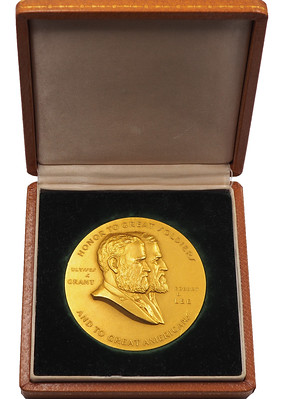 Lot 354 Very Rare Congressional Gold Medal of Honor – One of only four struck for presentation to the last surviving Veterans of the Civil War, 1956. AV, 70mm, 318 grams, by Gilroy Roberts. Stately conjoined busts of Ulysses S. Grant and Robert E. Lee r.; Rx: Shields bearing Union & Confederate flag motifs; torch, sword and olive sprig with multi-line legend below. Unc with a few faint whispy inclusions and and cpl tiny old test marks on the edge, accompanied by its original presentation case. This example was presented to Walter Williams, Centenarian and the famous, possibly dubious forager for Hood's Brigade who died December 19, 1959.
Lot 354 Very Rare Congressional Gold Medal of Honor – One of only four struck for presentation to the last surviving Veterans of the Civil War, 1956. AV, 70mm, 318 grams, by Gilroy Roberts. Stately conjoined busts of Ulysses S. Grant and Robert E. Lee r.; Rx: Shields bearing Union & Confederate flag motifs; torch, sword and olive sprig with multi-line legend below. Unc with a few faint whispy inclusions and and cpl tiny old test marks on the edge, accompanied by its original presentation case. This example was presented to Walter Williams, Centenarian and the famous, possibly dubious forager for Hood's Brigade who died December 19, 1959.
Williams, often revered by many as the last surviving Confederate Civil War Veteran, still to this day remains a famous yet undocumented mystery in the annals of history. This medal first reached the numismatic community via the Williams family in the 1976 ANA Sale conducted by Stack's as lot #3321. The only other medal of its kind currently in public domain appeared in a NASCA sale of 1978, which was the William Lunday medal. The Albert Woolson specimen now resides in the Smithsonian Institution via the Sons of the Union Veterans with the fourth and final medallion being destroyed according to Stack's. A monumental rarity and sure to be the centerpiece of any medallic, exonumia or Civil War collection. An impressive and historic jewel, weighing in at over 10 ounces of solid gold. Sure to incite spirited bidding on its way to a new home as one of this original quartet of medals may never surface again in the collector market.
Lot 384 Rare & Unique George Washington Bicentennial/Proclaim Liberty Plaster, Medal and Photographic Historical Archive of Laura Gardin Fraser, circa 1931. Likely unique and previously unknown Original Reverse Plaster, Medal and original unpublished studio photographs of Laura Gardin Fraser. Features a white alabaster plaster model with olive green applied finish, 9 1/8" diameter, 2 1/4" thick, a small drilled hole for hanging on the back; unsigned but marked FINAL
on verso.
Design as executed by Laura Gardin Fraser for use on the reverse of the 1932 George Washington Bicentennial Commemorative Medal. The design depicts a magnificent stylized Lady Liberty with radiate headdress, in likeness to the the Statue of Liberty; Eagle above with 13 Stars, holding a torch and sword to the sky, flanked by the legend PROCLAIM LIBERTY THROUGHOUT ALL THE LAND. The plaster is augmented by one of the actual issued medals; both overall EF or better, cpl tiny chips to the green finish of the plaster from age and storage.
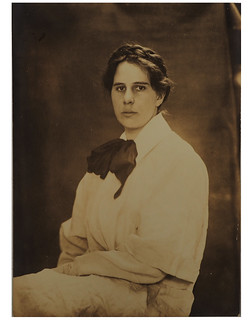 Accompanying the plaster and medal are two original, unpublished sepia tone
Accompanying the plaster and medal are two original, unpublished sepia tone 7 3/8" x 9 1/8" and 8" x 10" studio photographic images of Laura Gardin Fraser, one posed in a formal smock along with a second image of her with her stunning life-size sculpture of a Royal Elk - quite likely a commissioned work for the Hartford Insurance Company. This fabulous ensemble is a virtual time capsule of one of America's most famous coin designers. From the estate of close Fraser family friend, sculptor and photographer Vincent DeMeo.
Another similar Fraser coin design archive for the Washington Quarter competition from the DeMeo estate sold for over $10,000 with the BP in our Auction Sale #65, December 2020. This discovery archive and offering of such amazing pieces, their historic relevance and irreplaceable nature are both difficult to fathom the true value of and estimate as no others are available. An important opportunity for the advanced collector of U.S. Mint History, the Washington Quarter specialist or any registry set collectors who are fans of Fraser's coin designs and Medallic art. This lot contains both the original Plaster for the Washington Bicentennial Medal reverse, the issued medal itself plus two original, unpublished sepia tone photographs images of Laura Gardin Fraser; four items in all.
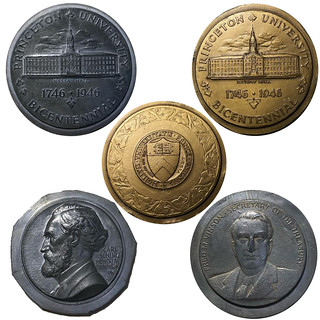 Lot 385. John R. Sinnock Estate Quintet of Uniface Medallic Splashers and Trial Strikes, circa 1946. Features five Uniface Medallic Trial Strikes and Splashers in WM, two with Bronzed finish application. Avg 85-90mm, by John R. Sinnock, designer of the Roosevelt Dime and Franklin Half Dollar along with other issues, some trimmed with slightly irregular edges as made, cpl old marks here and there yet nearly as made. Designs feature Princeton University Bicentennial depicting Nassau Hall, 1946(3); Carl Schurz Memorial Foundation, ND and Fred M. Vinson, Secretary of the Treasury, ND(1946). AU to Unc, pleasing and historic, these would make a wonderful exhibit or Medallic ensemble if paired with examples of the actual issued Medals, which on their own merits are quite scarce and primarily in University Archives and museums – these trials likely being Unique and from the Sinnock Estate, adding to their desirability. A tremendous group that cannot be replicated or found elsewhere and a wonderful find. Five Uniface Die Trial Strikes/Splashers in all
Lot 385. John R. Sinnock Estate Quintet of Uniface Medallic Splashers and Trial Strikes, circa 1946. Features five Uniface Medallic Trial Strikes and Splashers in WM, two with Bronzed finish application. Avg 85-90mm, by John R. Sinnock, designer of the Roosevelt Dime and Franklin Half Dollar along with other issues, some trimmed with slightly irregular edges as made, cpl old marks here and there yet nearly as made. Designs feature Princeton University Bicentennial depicting Nassau Hall, 1946(3); Carl Schurz Memorial Foundation, ND and Fred M. Vinson, Secretary of the Treasury, ND(1946). AU to Unc, pleasing and historic, these would make a wonderful exhibit or Medallic ensemble if paired with examples of the actual issued Medals, which on their own merits are quite scarce and primarily in University Archives and museums – these trials likely being Unique and from the Sinnock Estate, adding to their desirability. A tremendous group that cannot be replicated or found elsewhere and a wonderful find. Five Uniface Die Trial Strikes/Splashers in all
Lot 386 Rare & Unusual Experimental 12-Sided Libertas Americana Design Metallurgical Pattern/Trial Post-War Era 5 Cent Size Example in Cupro-Nickel Clad Steel. 20.77mm, on a 12-Sided planchet that appears to be round when viewed head-on, made of three bonded/clad layers with a magnetized steel core and two outer cupro-nickel layers. The piece exhibits pronounced, deeply struck/dished fields and weighs in at 4.35 grams with a specific gravity of 7.9. The design depicts a Libertas Americana Portrait remarkably like the John R. Sinnock Assay Medal central design of 1945, though minus the Cap and Pole. The reverse bears random sample letters and numerals at the center within a wreath; very close in nature to that of the G.M. Roller Die Cents by Frank Gasparro and earlier synonymous designs by Sinnock. This piece and a similar unverified one, along with a smaller and lesser weight Cent size discovery example have been the subject of numerous articles and studies, none with conclusive results since first reported in 1962.
One can certainly speculate this design was possibly an expeditionary trial into the realm of the Canadian Five Cent coins of the WWII, Korean and Postwar period possessing similar edge designs and experimental compositions to allow for more economic mass production with metals not as critical to the war efforts. Quite possibly unique or one of only two known in this size and weight. Semi-reflective lustrous AU with the slightest hints of toning, the exposed core at the 12-sided edge displays some deeper colored areas of oxidation and micro traces of rust attesting to its steel content, visible only from the side view. A true enigma, and an important advanced technology prototype for the period.
It is likely the dies or even the striking of this piece was possibly executed in part or whole at the U.S. Mint or by subcontracted agency affiliates in the automotive industry. Similar entities were approached during WWII and the Postwar era for affordable, high production run coinage alternatives. A rare, widely storied and well-documented Michigan collector find, detailed in articles by Ken Potter, The Numismatist, Coin World and Numismatic News. As the saying goes, it can now be yours if the price is right! Certainly worthy of a strong bid and further research, a rarity that cannot be acquired elsewhere in the marketplace.
For more information, or to bid, see:
Sale 67 Day 1 Timed Auction
(https://numismaticauctions.nextlot.com/auctions/1417146/lots)
KÜNKER SALE 379 HIGHLIGHTS
Here is the press release for the upcoming Künker February sale 379. -Editor
730 Lots Estimated at 6M Euros – Künker's Berlin Auction Sales
Künker's sales on 2 February 2023 are auctions of superlatives. Special highlights: the Widegren Collection with Swedish coins and the second part of the Liska Collection with rare coins from Czechoslovakia, not to forget 100 rarities from the Salton Collection.
On 2 February 2023, Künker will hold its traditional Berlin auction sale during the World Money Fair. One cannot help but look forward to this sale as the wealth of rarities and unique pieces will most likely attract coin collectors as well as dealers from all over the world to gather at the auction venue. The 730 lots – divided into two auction catalogs – have a total estimate of 6 million euros. The total result might be even higher – especially regarding the 100 rarities from the Salton Collection, which are on offer in auction catalog 379. After all, the lots are estimated rather modestly.
If you're thinking now that all of this is way off your price range, you're wrong. In these high-class auction sales, several special collections and runs are on offer. At this point, we will only mention the Widegren Collection with Swedish coins and the second part of the Liska Collection. As is typical for collections, they contain both extremely rare and common pieces. Therefore, estimates start at 100 euros. In general, if you love gold coins you should take a close look at auction 380. You will find a rich selection.
And since after the auction is before the auction, we already want to draw your attention to the next sale. The Dr. Eberhard Werther Collection will probably be sold on 7 February 2023 as an eLive Premium Auction.
Catalog 379: The Salton Collection – 100 Rarities of European Minted History
By now, probably anyone who's interested in coins is familiar with the name Salton. That's how young Max Schlessinger called himself after he had escaped the terror of the Holocaust and found a new home in the United States of America. It is an incredible sign of reconciliation that his widow Lottie Salton, also a victim of the persecution of Jews, decided to have their collection sold in Germany and the USA. Künker is highly honored by her trust. It was a matter close to the heart of the management to thoroughly investigate the fate of the Hamburger-Schlessinger coin dealer dynasty, whose last coin dealing descendant was Max Schlessinger aka Mark Salton, and to publish the story in a comprehensive brochure. Subject to availability, this publication can be obtained free of charge from Künker's customer service.
For their Berlin Auction, Künker selected exactly 100 rarities from the extensive collection. These are exclusively extremely rare pieces, characterized by both excellent quality and provenance. After all, most of the coins were part of the Salton Collection for more than half a century. Let's not talk too much and let the pictures of the coins speak for themselves.
No. 12: Brunswick-Calenberg-Hanover. John Frederick, 1665-1679. Löser of 6 reichstalers 1679, Zellerfeld. Minted and distributed on the occasion of John Frederick's funeral. From the Salton and Meyerhof Collections, Schulman auction 171 (1930), No. 156. Extremely rare. About extremely fine. Estimate: 40,000 euros
No. 24: Leiningen-Westerburg. Ludwig, 1597-1622. Broad double reichstaler 1610, Grünstadt. Extremely rare, probably unique. From the Salton Collection and Schlessinger auction 10 (1933), No. 967. Very fine to extremely fine. Estimate: 50,000 euros
No. 36: Saxony. Friedrich III the Wise, 1486-1525. Guldengroschen n.d. (1513), Nuremberg, commemorating him becoming Governor General. From the Salton Collection. Very rare. About extremely fine. Estimate: 15,000 euros
No. 56: Wallenstein, Albrecht, 1623-1634, Duke of Friedland. Double reichstaler 1627, Jitschin. From the Salton Collection. Extremely rare. Very fine +. Estimate: 30,000 euros
No. 64: HRE. Ferdinand I, 1522-1558-1564. Representative taler 1528, Hall. Dies by Ulrich Ursentaler. From the Salton Collection. Extremely rare. About extremely fine. Estimate: 25,000 euros
No. 67: HRE. Matthias, 1608-1612-1619. Quadruple reichstaler 1614, Vienna. From the Salton Collection. Extremely rare. Very fine. Estimate: 20,000 euros
No. 81: Denmark. Christian VII, 1766-1808. Piastre 1771 (minted in 1774), Copenhagen. Minted by the Danish Asia Company. So-called Greenland Pillar Dollar. From the Salton and Ragoczy Collections (1961), No. 670. Very rare. Very fine +. Estimate: 20,000 euros
No. 100: Bohemia and Moravia. Wenceslaus IV, 1378-1419. Prague groschen n.d., Prague. Broad off-metal strike of 15 Prague groschen. From the Salton and Donebauer Collections, Hess auction (1889), No. 850 and the Wunderly von Muralt Collection, L+L Hamburger auction (1899), No. 61. Extremely rare. Very fine to extremely fine. Estimate: 10,000 euros
We want to emphasize that it's also possible to acquire rarities from this collection that are not as expensive. We picked out some particularly beautiful pieces with estimates of less than 3,000 euros.
No. 13: Brunswick-Calenberg-Hanover. Ernest Augustus, 1679-1698. Reichstaler 1682, Clausthal. From the Salton Collection. Very rare. Extremely fine. Estimate: 2,000 euros
No. 19: Henneberg. Reichstaler 1698, yield from the mines of Ilmenau. From the Salton Collection. Rare. Showpiece. About FDC. Estimate: 2,500 euros
No. 33: Osnabrück / Bishopric. Sede vacante 1698. Reichstaler 1698, Hanover. From the Salton Collection. Very rare. Extremely fine to FDC. Estimate: 1,000 euros
No. 82: Strassbourg / City (France). Reichstaler 1679, commemorating the Treaties of Nijmegen. From the Salton Collection. Very rare. Very fine to extremely fine. Estimate: 1,500 euros
To order a catalog contact Künker, Nobbenburger Straße 4a, 49076 Osnabrück; phone: +49 541 / 962020; fax: +49 541 / 9620222; or via e-mail: service@kuenker.de. You can access the auction catalogs online at www.kuenker.de. If you want to submit your bid from your computer at home, please remember to register for this service in good time.
For more information, see:
https://www.kuenker.de/en
KEUNKER SALE 380 HIGHLIGHTS
Here is the press release for the upcoming Künker February sale 380. -Editor
Catalog 380: Coins and Medals from Medieval and Modern Times, Including Issues of the Kingdom of Sweden – the Stefan Widegren Collection – as well as Gold Coins from Czechoslovakia from the Dr. Pavel Liska Collection
One doesn't even know where to begin when highlighting the most remarkable pieces of auction 380. It seems like every other piece would be suitable to be depicted in this preview. Geographically speaking, the selection ranges from Albania to Zurich, in terms of time from the Stauffer Emperor Frederick I to the 1990s. The lightest coin has a weight of 0.87 g, the heaviest of 14.60 kilos. In other words: it really is an auction of superlatives with rarities of a kind that only enter the market on rare occasions.
An outstanding highlight is the Stefan Widegren Collection of Swedish coins. Among other items, it contains the first Swedish gold coin, a 1568 gold gulden minted by Eric XIV in Stockholm. Another highlight is the double rosenoble of half a portugaleser issued on behalf of John III around 1585/6. What's indisputably the most spectacular piece of this collection is the copper plate of 8 talers, created in 1659 in Avesta. After all, this piece is the second largest historical coin in the world. The Widegren Collection is complemented by further spectacular coins from Sweden from other estates.
No. 340: Sweden. Eric XIV, 1560-1568. Gold gulden 1568, Stockholm. From the Widegren Collection. Extremely rare. Small hole. Very fine to extremely fine. Estimate: 50,000 euros
No. 341: Sweden. John III 1568-1592. 2 rosenoble (1/2 potugaleser) n.d. (1585/6), Stockholm. From the Widegren Collection. Extremely rare. Minor traces of mounting, slightly bent, very fine. Estimate: 25,000 euros
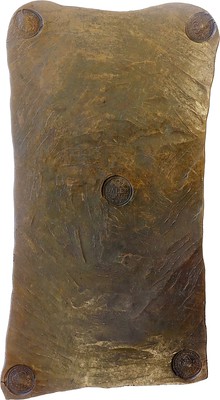 No. 343: Sweden. Charles X Gustav, 1654-1660. Copper plate of 8 daler silvermynt 1659, Avesta. From the Widegren Collection. Extremely rare. The world's second largest coin. Extremely fine. Estimate: 150,000 euros
No. 343: Sweden. Charles X Gustav, 1654-1660. Copper plate of 8 daler silvermynt 1659, Avesta. From the Widegren Collection. Extremely rare. The world's second largest coin. Extremely fine. Estimate: 150,000 euros
No. 439: Sweden. Sigismund, 1592-1599. Daler 1594, Stockholm. Very rare. Very fine. Estimate: 25,000 euros
Collectors of Czechoslovak coins can look forward to another part of the Liska Collection with numerous spectacularly rare pieces of exquisite quality. At this point, we will limit our preview to No. 477, of which only 56 specimens were minted. NGC graded the piece MS68.
No. 477: Czechoslovakia. 10 ducats 1951, Kremnica. From the Liska Collection. Only 56 specimens minted. NGC MS68. About FDC. Estimate: 25,000 euros
No. 479: Czechoslovakia. 2 ducats 1951, Kremnica. From the Liska Collection. Only 200 specimens minted. NGC MS67. Extremely fine to FDC. Estimate: 25,000 euros
Magnificent individual pieces and attractive runs – this is what auction 380 is characterized by. The wealth of rarities cannot be done justice in this preview in the slightest, therefore we limit ourselves to lots with estimates in the six-digit range and the only order of this auction sale.
No. 288: Great Britain. Victoria, 1837-1901. 5 Pounds 1839, London. Una and the Lion
. NGC PF 63 CAMEO (Top Pop). Very rare. Proof. Estimate: 100,000 euros
No. 485: Hungary / Transylvania. Georg Rakoczi II, 1648-1660. 10 ducats 1657, Weißenburg. Extremely rare. NGC AU58. About extremely fine / Extremely fine. Estimate: 150,000 euros
No. 630: Austria / Austrian princes / Schlick. Stephan, Burian, Heinrich, Hieronymus and Lorenz, 1505-1532. Broad triple taler 1520, Joachimsthal. Extremely rare. Very fine. Estimate: 100,000 euros
No. 642: Bamberg. Lothar Franz von Schönborn, 1693-1729. 10 ducats 1697, Nuremberg. NGC MS61+. Extremely rare. Extremely fine +. Estimate: 100,000 euros
No. 663: Brandenburg-Prussia. Frederick William, 1640-1688. 5 ducats 1679, Berlin. Extremely rare. NGC AU58. Extremely rare. About extremely fine / Extremely fine. Estimate: 100,000 euros
No. 675: Brandenburg-Prussia. William I, 1861-1888. Gold medal of 120 ducats 1871, by E. Weigand and F. W. Kullrich. General's medal commemorating the victory over France. Only 25 gold specimens minted. Extremely fine. Estimate: 100,000 euros
No. 732: Eichstätt / Bishopric. Johann Conrad von Gemmingen, 1595-1612. 8 ducats 1596, Nuremberg. Extremely rare. Extremely fine. Estimate: 150,000 euros
No. 835: Saxony. Christian II, Johan Georg I and Augustus, 1591-1611. 10 ducats 1611, Dresden. Commemorating the death of Christian II. From MMAG auction 7 (1948), No. 130. Extremely rare. NGC MS65. About FDC. Estimate: 250,000 euros
No. 843: Saxony. Frederick Augustus I, 1694-1733. 8 ducats 1725, Dresden. From the Dr. Friedrich Collection, Hess auction (1914), No. 1127. NGC MS 62+. Extremely rare. Extremely fine to FDC. Estimate: 100,000 euros
No. 864: Schwarzenberg. Adam Franz, 1703-1732. 10 ducats 1721, Vienna. Extremely rare. Extremely fine. Estimate: 125,000 euros
No. 512. Oman. Quabus bin Sa'id, 1970-2020. 1982 Order of N'Oman, 1st class set, made by the Spink & Son Ltd. company in London. Extremely rare set of orders. Quality: I. Estimate: 12,500 euros
As we don't want to create the false illusion that this auction wouldn't be of interest to normal
collectors, we follow these items by some attractive coins with estimates of less than 500 euros.
No. 407: Sweden. Oscar II, 1872-1907. 5 krona 1881, Stockholm. About FDC. Estimate: 100 euros
No. 539: USA. 5 dollars 1903 San Francisco. NGC MS64. Extremely fine +. Estimate: 400 euros
No. 727: Bremen. 1/2 reichstaler 1748. Extremely fine. Estimate: 300 euros
No. 797: Nuremberg. 1/4 ducat 1700 (later issue). Extremely fine to FDC. Estimate: 200 euros
No. 801: Nuremberg. Gold medal of one ducat n.d. (18th century). NGC MS61. Extremely fine. Estimate: 250
To order a catalog contact Künker, Nobbenburger Straße 4a, 49076 Osnabrück; phone: +49 541 / 962020; fax: +49 541 / 9620222; or via e-mail: service@kuenker.de. You can access the auction catalogs online at www.kuenker.de. If you want to submit your bid from your computer at home, please remember to register for this service in good time.
For more information, see:
https://www.kuenker.de/en
NUMISMATIC NUGGETS: DECEMBER 25, 2022
Here's a selection of interesting or unusual items I came across in the marketplace this week. Tell us what you think of some of these. -Editor
Charles I (1625-49), Civil War Siege coinage, Obsidional Coinage, Carlisle besieged, Silver Shilling, 1645, Type II, C:R crowned with tri-pellets either side, mark of value XII. Below, within linear circle. Rev, legend in two lines, OBS CARL / (1645), contraction bar above L, , recognised die flaw running from the R in legend up through the top serif of the S, 5.12g (S.3139; N.2636; Brooker -; Nelson 4; cf. Slaney Part II, lot 350, 14.5.2015; cf. Goldberg's Auction 120, lot 1474, 2.2.2021, the William Oldknow specimen). A bold strike for issue, toned and the rarer of the two types for this Shilling, with the reverse legend and date in two lines. Some very minor marks on the reverse, otherwise much as struck, extremely rare, seldom seen at auction or within dealers trays. Purchased privately in the 1960's by a house of Stuart collector.
By the autumn of 1644, much of northern England was under the control of Parliament. Carlisle, which remained loyal to the king, was blockaded by a Scots army under the command of David Leslie from October to June the following year. In May 1645, an emergency issue of three-shilling and one-shilling coins was struck from silver plate supplied by the besieged citizens. Interestingly, these coins were tariffed at more than their intrinsic silver value – six shillings face being produced from five shillings' worth of metal. These coins were produced, and survive, in much smaller quantities than the contemporary siege issue from Newark.
Sold recently by Baldwin's. -Editor
To read the complete lot description, see:
Charles I (1625-49), Civil War Siege coinage, Obsidional Coinage, Carlisle besieged, Silver Shilling, 1645, Type II
(https://auctions.baldwin.co.uk/108-lot-92-lot-92-british)
1759 Quebec Taken Medal in Silver, Leroux-864, Betts-421, Breton-51, Eimer-673. Ex: John J. Ford.
40mm. 22.23g. Plain edge. Unsigned (by John Pingo). The Quebec Taken medal forms part of the series of medals commissioned by the Society Promoting Arts and Commerce to commemorate the various British victories of the Seven Years' War. It is one of the most iconic and sought-after Canadian medals and is rare in both copper and silver. At least four examples exist in gold.
The obverse features Britannia facing left above a laurel wreath with a crossed trident and an antique standard,
as Betts describes it. The names of Sir Charles Saunders and General James Wolfe appear left and right. The reverse depicts Victory holding in one hand a palm branch and in the other a laurel crown, which she places atop the military costume of a captured French soldier, who is tied to a tree. The image is a play on the famous Judea Capta motif.
This magnificently preserved example is completely original with olive and golden-orange iridescence around the rims, while the centres exhibit elegant blue and lavender patina. Both sides are unworn and razor-sharp. A single mark appears on Britannia's cheek. An unimprovable example.
Ex: Purchased by John J. Ford from Fred Baldwin on June 24, 1965; Ford Collection, Part XIV (Stack's, 5/2006), lot 72.
A new online listing from Jacob Lipson. -Editor
To read the complete item description, see:
1759 Quebec Taken Medal in Silver, Leroux-864, Betts-421, Breton-51, Eimer-673. Ex: John J. Ford.
(https://www.jacoblipsonrarecoins.com/inventory/1759-quebec-taken-medal-in-silver-leroux-864-betts-421-breton-51-eimer-673-ex-john-j-ford)
One (1) Oil City & Petroleum Bridge Co. transportation token from Oil City, PA.
A duplicate recently sold on eBay by the American Numismatic Society. -Editor
To read the complete lot description, see:
https://www.ebay.com/itm/134355293961
(https://www.ebay.com/itm/134355293961)
Presented is an engraved silver medal that was presented to Argentina's Alfredo Di Stefano for their squad winning the 1947 South American Football Championships held in Ecuador. Argentina went undefeated in the tournament, going 6-0-1 (13 points), with their only non-victory being a 1-1 draw to Chile. The Argentinians outscored their opponents 28 to 4.
This medal is in the shape of a shield with "CONFEDERACION SUDAMERICAN FOOTBALL 1947" engraved on the front, which translates to. "SOUTH AMERICAN FOOTBALL CONFEDERATION 1947." The back has engraved "XV CAMPEONATO DE FOOTBALL AL JUGADOR ALFREDO S. Di STEFANO DEL TEAM GANADOR Gquil-Ecuador," which translates to " XV CAMPEONATO DE FOOTBALL TO THE PLAYER ALFREDO S. Di STEFANO FROM THE WINNING TEAM Gquil-Ecuador."
After playing for Real Madrid in Spain for most of the 1950s, Di Stefano became a naturalized citizen of Spain in October of 1956. His tenure with Argentina only lasted the six games he appeared during the South American Football Championships in 1947, as he also made four appearances for Colombia's "combined XI" squad in 1951 and was subsequently banned by FIFA from representing Argentina and Spain. However, FIFA, after pressure from the Spanish FA, reversed their decision and allowed Di Stefano to represent Spain. This medal comes from the Alfredo Di Stefano Collection, previously auctioned.
Timely following the recent conclusion of the World Cup. Offered by Goldin. -Editor
To read the complete lot description, see:
1947 South American Football Championships Winner's Medal Presented to Alfredo Di Stefano
(https://goldin.co/item/1947-alfredo-di-stefano-s-suda-america-winner-s-medal-needs-tj-kayedd995)
(5.839 oz, 181.615 g ASW). 1972 Apollo 17 Art Medal.
From the Stack's Bowers January 5, 2023 Precious Metals Auction. Does anyone know the backstory about this medal? Who commissioned it? Designed by Ralph Menconi, the reverse is very busy with nine or ten design elements, but nicely executed. Who specified all that for inclusion? The obverse is better, but the figure on the left with his head tilted back looks like some kind of alien, What do the conspiracy theorists say about this one? -Editor
To read the complete lot description, see:
(5.839 oz, 181.615 g ASW). 1972 Apollo 17 Art Medal.
(https://auctions.stacksbowers.com/lots/view/3-10M254/5839-oz-181615-g-asw-1972-apollo-17-art-medal)
Satirical 6 cents Humbug Glory Bank note, Washington, D.C., dated August 21, 1837. Printed during the Panic of 1837 that began during the presidency of Andrew Jackson (1767-1845), seventh President of the United States from 1829 to 1837, the note is payable to Missouri senator "Tumble Bug [Thomas Hart] Benton," nicknamed "Old Bullion", with printed signatures for "Cunning Reuben [Miles Whitney]," anti-bank advisor to Jackson, as cashier of the bank, and "Honest Amos [Kendall], fourth auditor of the Treasury, postmaster General, and Martin Van Buren advisor, as president of the bank, with a "Sc" maker's mark for Martin Van Buren, eighth Vice President and eighth President from 1837-1841.
Vignettes and lettering include imagery and phrases connected to Andrew Jackson, including several stacked coins with Jackson's head, left; a jackass with the title "Roman Firmness" and a hickory leaf in reference to Jackson's nickname "Old Hickory," top center and right; a vignette showing a top hat, clay pipe, spectacles, hickory stick, and veto of the 1832 bill to recharter the Bank of the United States, center right; with a quote from Jackson's March 1837 farewell address, "I leave this great people prosperous and happy" across the top center. Blank reverse. 3 1/4" H x 7 3/8" W. 2nd item: Manilla folder from dealer Forest H. Sweet, Battle Creek, Michigan, with a handwritten inscription indicating that the 1st item was purchased from a sale of items belonging to Andrew Jackson IV (1834-1906), who was a son of President Andrew Jackson's adopted son and Colonel of the First Tennessee Heavy Artillery in the Confederate Army. 13" H x 20" W.
From the Case Auctions January 28-29, 2023 sale. -Editor
To read the complete lot description, see:
Lot 640: Jacksonian Satirical Humbug Glory Bank Note, Panic of 1837 Related, 2 items
(https://caseantiques.com/item/lot-640-jacksonian-satirical-humbug-glory-bank-note-panic-of-1837-related-2-items/)
HEREFORDSHIRE HOARD HEARING
David Pickup passed along this Daily Mail article with more on the Herefordshire hoard. -Editor
David writes:
"At a court hearing this week two men were order to pay £600,000.00 each within three months or face an additional five years in gaol. They had been sentenced to ten years and eight and a half years each in 2019 for theft of a hoard of coins and artefacts from the Viking period. The further penalty was ordered because the judge said the pair were still hiding 270 coins worth about £10,000 each."
A man jailed for not declaring a £5m Viking hoard he and a friend discovered with metal detectors claimed he had sold 20 coins to a rogue dealer at a motorway service station.
George Powell, 40, who was jailed in 2019 alongside his fellow metal detectorist Layton Davies, 54, told a proceeds of crime act hearing that he received £20,000 for the 1,100-year-old coins.
Powell claimed he passed the coins on to corrupt antiques dealer Simon Wicks who gave him the cash at a service station on the M4 motorway.
He said: 'I gambled it away. I've got a bit of a naughty habit.'
'We are metal detectorists, you want to become rich to get the payout, it's a treasure hunting hobby.'
To read the complete article, see:
Rogue metal detectorist who was jailed for failing to declare £5m Anglo-Saxon hoard tells proceeds of crime hearing he sold it for £20,000 to a man at a service station and has gambled the lot away
(https://www.dailymail.co.uk/news/article-11363093/Rogue-metal-detectorist-claims-gambled-away-illicit-proceeds-haul.html)
David adds:
"Most detectorists and collectors are highly respectable and honest. Standards of probity are very high. If these two had been honest and reported the find they and the landowner would have been rewarded by the government for the find.
"In other news the BBC is broadcasting a Christmas special of the hit comedy series The Detectorists. If you have not seen it, the gentle comedy is very funny, marvellously acted and the English countryside is beautifully filmed. In one scene Lance played by Toby Jones discusses why they detect and talks about how metal detecting is the closest one can get to time travel. As so it is but coin collecting is as well. We are literally in touch with the past through the designs, rulers and everyday life of the individual. Coins tell so many stories. At this time of year I think of the people who handled my small collection of prutahs and leptons dating from Bible times and wondered who touched them, what they bought and their lives. Happy holidays everyone."
For more information on the show The Detectorists, see:
Detectorists: Why a metal-detecting show became a global hit
(https://www.bbc.com/culture/article/20221216-detectorists-why-a-metal-detecting-show-became-a-global-hit)
To read the earlier E-Sylum article, see:
DETECTORISTS CAUGHT TAKING ANGLO-SAXON HOARD
(https://www.coinbooks.org/v22/esylum_v22n47a19.html)
GOLD GUINEA FOUND AT BATTLE OF RED BANK
Tom Kays passed along this article from August; if we've discussed it before I've been unable to locate it in our archives. Nice find. -Editor
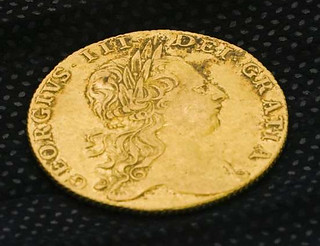 Researchers believe they have uncovered in a mass grave in New Jersey the remains of as many as 12 Hessian soldiers who fought during the Revolutionary War, officials announced Tuesday.
Researchers believe they have uncovered in a mass grave in New Jersey the remains of as many as 12 Hessian soldiers who fought during the Revolutionary War, officials announced Tuesday.
The remains, found at the site of Fort Mercer and the 1777 Battle of Red Bank, rested for 245 years until a human femur was found in June during an archaeologicall dig of a trench system that surrounded the fort, scientists said. Additional excavation yielded more skeletal remains and items including pewter and brass buttons and a King George III gold guinea, which would have been a soldier's pay for a month.
A team of scientists from Rowan University and officials from Gloucester County presented their preliminary findings during a news conference at Red Bank Battlefield Park, just south of Philadelphia.
Officials believe the remains are part of a mass grave of Hessian soldiers—German troops hired by the British—who were part of about 377 troops killed by Colonial forces during the Battle of Red Bank. Americans lost 14, historians said.
The victory allowed Americans at the fort to delay the British from moving supplies up the Delaware River.
The remains have been turned over to forensic anthropologists at the New Jersey State Police forensic unit to extract DNA from the bones and teeth to identify their origin. Additional studies are being conducted to examine life history, health and disease.
Officials said the remains were excavated with "extraordinary attention" to preserving the dignity of war dead.
When the study is complete, they will be interred at another site, and the trench will be refilled. The land will be incorporated into the park on a bluff overlooking the river.
"Archaeology is helping us better understand what happened on the battlefield," Janofsky said.
For numismatic bibliophiles I'll note that Frank Stewart, author of The History of the First United States Mint also wrote about the History of the Battle of Red Bank. -Editor
Tom adds:
"Here are Hessian soldiers in review (on parade) at Mount Vernon in a photo I took back in 2016 at the grand Revolutionary War Weekend reenactment. They strive for period correct dress and accoutrements."
To read the complete article, see:
Hessian remains unearthed at Revolutionary War battle site
(https://phys.org/news/2022-08-hessian-unearthed-revolutionary-war-site.html)
2023 COIN OF THE YEAR NOMINEES
The nominees for the 2023 Coin of the Year have been announced. -Editor
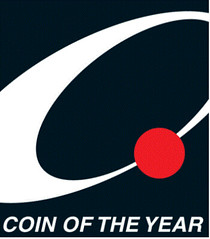 From 2,300 coins produced around the globe, 100 rose to the top. This is how 10 coins in 10 categories of competition became The COTY 100, these to be considered by an international panel of judges in the first round of voting in the 2023 Coin of the Year awards. The coins are all dated 2021.
From 2,300 coins produced around the globe, 100 rose to the top. This is how 10 coins in 10 categories of competition became The COTY 100, these to be considered by an international panel of judges in the first round of voting in the 2023 Coin of the Year awards. The coins are all dated 2021.
The program, presented by World Coin News and sponsored by The Journal of East Asian Numismatics, begins each year when the COTY Nominating Committee convenes to select these 100 nominees.
After all the preliminary weeding down from roughly 2,300 coins produced in 2021, the COTY Nominating Committee considered nearly 400 coins from 40 countries in just about four hours,
said Tom Michael, COTY co-coordinator, senior editor and market analyst for NumisMaster. In the end, they selected coins from more than 30 of them as finalists. I really like that broad span! It tells us that an increasing number of coin producers and issuing countries are creating hand-held works of high quality on an ever-expanding basis.
The categories are:
- Most Historically Significant
- Best Contemporary Event
- Best Bi-Metallic Coin
- Best Gold Coin
- Best Silver Coin
- Best Crown
- Best Circulating Coin
- Most Artistic Coin
- Most Innovative Coin
- Most Inspirational Coin
See the complete article online for the full list of nominees. Here are the nominees for Most Artistic Coin, with the Ukraine Independence coin illustrated. -Editor
To read the complete article, see:
The COTY 100
(https://www.numismaticnews.net/world-coins/the-coty-100-2022)
ENGELHARD LONDON SILVER INGOTS
A new article published today on the All Engelhard site discusses the Engelhard London silver ingots. -Editor
Our very first All Engelhard article in March of 2015 featured Engelhard London Kilos and Half Kilos
. This is
where it all started for us… the mystique and allure of these old-world vintage ingots intrigued us on many
levels, setting us on a journey that continues to this day. There truly is something magical about these very
early, iconic legacy ingots that is more captivating than any other collectible bullion we know of.
Engelhard London began producing 1 Kilo ingots in 1960, in both Silver and Gold, and reliable sources tell us that early production years were shared with N.M. Rothschild & Sons London, who later sold their bullion interest to Engelhard in 1968. The large and heavy font of the Engelhard London ingots was a typical and unique characteristic of Rothschild bullion production. Engelhard ceased production of London ingots in 1973, but their relatively short tenure delivered 100g, 250g, 10oz, 1/2 Kilo, 1 Kilo and even a 200oz example to the market.
In total, only about 15,000 Engelhard London ingots were produced over a 14 year span , with the latter 1
examples now 50 years old. If you visit our All Engelhard Definitive Page on Kilo and Half Kilo, you will see
that Engelhard London used most of the alphabet letters to prefix the serial numbers on their ingots, all
followed with 1 to 5 numerical digits. Engelhard London used one continuous numerical serial run while
shifting and interspersing letter prefixes along the way. While some of the ingots had slightly higher
production, like the P
prefix Portrait 1 Kilo ingots with the Mocatta Goldsmid Bullion Broker counterstamp
(center photo above), only a paltry 7,000 of these were minted and most have been melted over the years,
still making this ‘more common' example extremely rare in its own right. Lower production Engelhard London
Kilos and Half Kilos are now off-the-charts rare, and seldom seen or offered on the market today. That said,
few collectors truly understand their absolute rarity and relative significance in collectible bullion. Please visit
our AG / 1/2 Kilo / 1 Kilo Definitive Page that illustrates all varieties, and mintages.
At All Engelhard, we have been logging serial numbers on a daily basis for over 15 years now, and as of this date we have logged well over 30,000 photo verified serial numbers. Yet we have only logged a total of 560 Engelhard London 1 Kilo ingots, and 21 Engelhard London 1/2 Kilo ingots. These numbers represent approximately four percent of estimated original production mintage. While we originally surmised that the sheer beauty of these bars would have led owners to hold and store them indefinitely, resulting in a higher survivability rate (these bars are absolutely beautiful and we can't imagine melting them!), in actuality it was to the contrary. Because these early bars were Engelhard, the finest and most trusted name in bullion of its era, they were the choice bullion ingots of jewelers and fabricators, and sadly most were melted. We would estimate based on the numbers of logged survivors, that overall 15-20% of the 15,000 ingots produced are still with us, so possibly 2,250 to 3,000 survivors in the World, and that number includes all prefix letters and varieties of 1 Kilo and 1/2 Kilo ingots. As rare as that may sound, examples still do come available for sale occasionally, mostly in the UK where they originated, and when they do come to market, they are determinately met with very strong interest.
To read the complete article, see:
Engelhard London
(https://allengelhard.com/wp-content/uploads/2017/08/AGWire-ENGELHARD-LONDON-12-25-2022.pdf)
THE NEW KING CHARLES III BANKNOTES
Kavan Ratnatunga passed along this Bank of England news release about the new King Charles III banknotes. Thanks. It was published December 20, 2022. -Editor
Today the Bank of England unveiled the design of the King Charles III banknotes. The portrait of The King will appear on existing designs of all four polymer banknotes (£5, £10, £20 and £50), with no other changes to the existing designs.
The King's image will appear on the front of the banknotes, as well as in cameo in the see-through security window.
The new notes are expected to enter circulation by mid-2024. All polymer banknotes carrying a portrait of HM Queen Elizabeth II remain legal tender, and the public can continue to use these as normal. In line with guidance from the Royal Household, to minimise the environmental and financial impact of this change, new notes will only be printed to replace worn banknotes and to meet any overall increase in demand for banknotes. Notes featuring HM Queen Elizabeth II and King Charles III will therefore co-circulate.
Speaking ahead of the release, Governor Andrew Bailey said: I am very proud that the Bank is releasing the design of our new banknotes which will carry a portrait of King Charles III. This is a significant moment, as The King is only the second monarch to feature on our banknotes. People will be able to use these new notes as they start to enter circulation in 2024.
To read the complete article, see:
King Charles III banknotes unveiled
(https://www.bankofengland.co.uk/news/2022/december/king-charles-iii-banknotes-unveiled)
Arthur Shippee and Dick Hanscom passed along this BBC News article. -Editor
The Bank of England said that, following guidance from the Royal household, the new notes would only be printed to replace worn notes or to meet increased demand, in order to minimise the environmental and financial impact of the change.
Bank of England governor, Andrew Bailey, said he was "proud" of a "significant moment" with the new design.
Fifty pence coins bearing the image of King Charles III have already entered circulation via post offices across the country.
For anyone taking part in a family Christmas quiz this year, it is worth remembering that, in ascending order, the reverse side of current polymer Bank of England banknotes feature Sir Winston Churchill, Jane Austen, JMW Turner and Alan Turing.
Thanks also to Pablo Hoffman and Howard Berlin for a CNN article on the story. -Editor
To read the complete articles, see:
First pictures of King Charles banknotes revealed
(https://www.bbc.com/news/business-64026683)
First images of British banknotes featuring King Charles III unveiled
(https://www.cnn.com/2022/12/20/business/first-banknotes-king-charles-gbr-intl-scli/index.html)
LOOSE CHANGE: DECEMBER 25, 2022
Here are some additional items in the media this week that may be of interest. -Editor
Kavan Ratnatunga passed along this Facebook video of a contest where people fill sacks with pennies and carry them away. Thanks. -Editor
To watch the video, see:
How Much Can They Carry?
(facebook.com/watch/?v=484385193760759)
Aaron Oppenheim passed along this story about an Israeli jeweler who created NFT tokens with precious stones. Thanks. -Editor
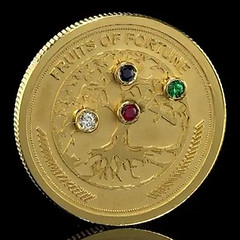 'The physical part of the NFT, which guarantees its value, is this 24-karat gold coin encrusted with diamonds, emeralds, rubies, ??and sapphires'
'The physical part of the NFT, which guarantees its value, is this 24-karat gold coin encrusted with diamonds, emeralds, rubies, ??and sapphires'
In the world of jewelry, Yvel is a real institution – founded 36 years ago and located at the entrance to Jerusalem, the store looks like an Ali Baba cave, full of pearls and precious stones.
Since its founding, Orna Levy – from a long line of diamond dealers – and her husband Isaac have received numerous awards for the beauty of their creations.
To read the complete article, see:
Israeli jeweler Yvel creates NFT tokens bearing precious stones
(https://www.i24news.tv/en/news/israel/technology-science/1671560192-israeli-jeweler-creates-nft-tokens-bearing-precious-stones)
CoinsWeekly published an article with University of Warsaw numismatists discussing the coin recently attributed to A Roman Emperor named Sponsianus. -Editor
To read the complete article, see:
An Expert Opinion on Sponsianus
(https://coinsweekly.com/an-expert-opinion-on-sponsianus/)
To read the earlier E-Sylum article, see:
COIN OF SPONSIAN IS GENUINE. OR IS IT?
(https://www.coinbooks.org/v25/esylum_v25n48a22.html)
From Quora. -Editor
Remember the medal ceremony at the end of the original Star Wars
?
I don't know if they're still there, but those medals used to be on display at the Planet Hollywood restaurant in Orlando, and when my family visited Disney in the 90s, we happened to have dinner at the display case where the prop was on display.
Reader, those things looked like cheap tinfoil smooshed around a wad of bent corrugated cardboard, and I assume chances are good that this is exactly what they really were.
The medals look great in the movie, because you only see them for a few seconds and nobody touches them — they're just dangled from the craft store ribbons. But in person, they looked like a downgrade from what you'd find in a Cracker Jack box.
To read the complete article, see:
Remember the medal ceremony at the end of the original Star Wars
?
(https://www.quora.com/What-are-the-cheapest-looking-props-youve-ever-spotted-being-used-in-a-big-budget-movie)
THE TWELVE COLLECTING DAYS OF CHRISTMAS
Adam Spikes submitted this great numismatic version of the Twelve Collecting Days of Christmas. Thank you! -Editor
Back in 2018, David Pickup thought he'd celebrate Christmas by trying to find twelve coins to illustrate the famous song. I've used five of his original choices but have added some I thought might be worthy of consideration. What would you have chosen? Per his original statement, This is not perfect…,
so give us grace on the coin choices we've made. I've included links to web pages for those of you who would like to research the coins further. Merry Christmas!!
https://en.numista.com/catalogue/pieces4987.html
Two turtle doves and a partridge in a pear tree. ♫
https://en.numista.com/catalogue/pieces166667.html
♫On the third day of Christmas, my true love gave to me…
Three French hens, two turtle doves, and a partridge in a pear tree. ♫
https://en.numista.com/catalogue/pieces21548.html
Not gonna lie, this one almost felt like I was cheating…but there just weren't many French hens to choose from.
♫On the fourth day of Christmas, my true love gave to me…
Four calling birds, three French hens, two turtle doves, and a partridge in a pear tree. ♫
https://en.numista.com/catalogue/pieces119100.html
Often called the Raven Penny, this coin was struck for the Viking Olaf Guthfrithson who was the king of Dublin between 934-941. Also, in America we sing calling birds,
but the early English version of the 12 Days of Christmas had it as Colly birds
(or blackbirds). Though it's not technically a blackbird, the raven was the closest David (and I) could find.
♫ On the fifth day of Christmas, my true love gave to me…
Five golden rings, four calling birds, three French hens,
two turtle doves and a partridge in a pear tree.♫
https://oldcurrencyexchange.com/2015/03/31/what-is-celtic-ring-money/
Before coinage was introduced to Britain in the Late Iron Age, people had to conduct transactions by bartering their products, goods and/or services. This process of payment and exchange may have been facilitated by gold ring money.
♫On the sixth day of Christmas, my true love gave to me…
Six geese a-layin,' five golden rings, four calling birds, three French hens,
two turtle doves, and a partridge in a pear tree. ♫
https://en.numista.com/catalogue/pieces24614.html
It has 5 (not 6) geese flying (not laying) but it was the best I could find. Am I the only one who has thought that this true love
had access to way too many birds?
♫On the seventh day of Christmas, my true love gave to me…
Seven swans a-swimmin,' six geese a-layin,' five golden rings, four calling birds,
three French hens, two turtle doves And a partridge in a pear tree.♫
https://en.numista.com/catalogue/pieces325446.html
A beautiful series that began in 2017. This edition really pops with the black swans colorized. Next year, the 2023 release will ironically be the the seventh
release which means the song could then be edited to, Seven swans o' silver?
♫ On the eighth day of Christmas, my true love gave to me…
Eight maids a-milkin,' seven swans a-swimmin,' Six geese a-layin,'
five golden rings, four calling birds, three French hens,
two turtle doves, and a partridge in a pear tree. ♫
https://en.numista.com/catalogue/pieces85889.html
Neither David nor I could not find any maids a milkin'
but here is a Latvian Brown cow they could milk!
♫ On the ninth day of Christmas, my true love gave to me…
Nine lords a-leapin,' Eight maids a-milkin,' seven swans a-swimmin,' six geese a-layin,'
five golden rings, four calling birds, three French hens, two turtle doves,
and a partridge in a pear tree. ♫
https://en.numista.com/catalogue/pieces53078.html
This lord
isn't leaping, but he was leaping
to fame when he amassed Great Britain's army during WWI and by being featured on a poster similar to our own with
Uncle Sam, Your Country Needs You.
♫ On the tenth day of Christmas, my true love gave to me…
Ten ladies dancin,' nine lords a-leapin,' eight maids a-milkin,' Seven swans a-swimmin,'
six geese a-layin,' five golden rings Four calling birds, three French hens Two turtle doves,
and a partridge in a pear tree. ♫
https://en.numista.com/catalogue/pieces80043.html
♫ On the eleventh day of Christmas, my true love gave to me…
Eleven pipers pipin,' ten ladies dancin,' nine lords a-leapin,' eight maids a-milkin,'
seven swans a-swimmin,' Six geese a-layin,' five golden rings, four calling birds, three French hens,
two turtle doves, and a partridge in a pear tree. ♫
https://www.jmbullion.com/1-oz-medieval-legends-pied-piper-silver-round/
Though this is NOT a coin and though the Pied Piper wasn't likely one of the eleven, he is a piper pipin!'
♫ On the twelfth day of Christmas, my true love gave to me…
Twelve drummers drummin,' eleven pipers pipin,' ten ladies dancin,' nine lords a-leapin,'
eight maids a-milkin,' seven swans a-swimmin,' Six geese a-layin,' five golden rings,
four calling birds, three French hens, two turtle doves, and a partridge in a pear tree. ♫
https://en.numista.com/catalogue/pieces56.html
I honestly couldn't think of a better way to finish up the 12 Days of Christmas than with a coin from our very own, great country. This is still one of my favorite coins of all time.
Merry Christmas and Happy New Year! -Editor
To read the earlier E-Sylum article, see:
THE TWELVE COIN COLLECTING DAYS OF CHRISTMAS
(https://www.coinbooks.org/v21/esylum_v21n51a25.html)

